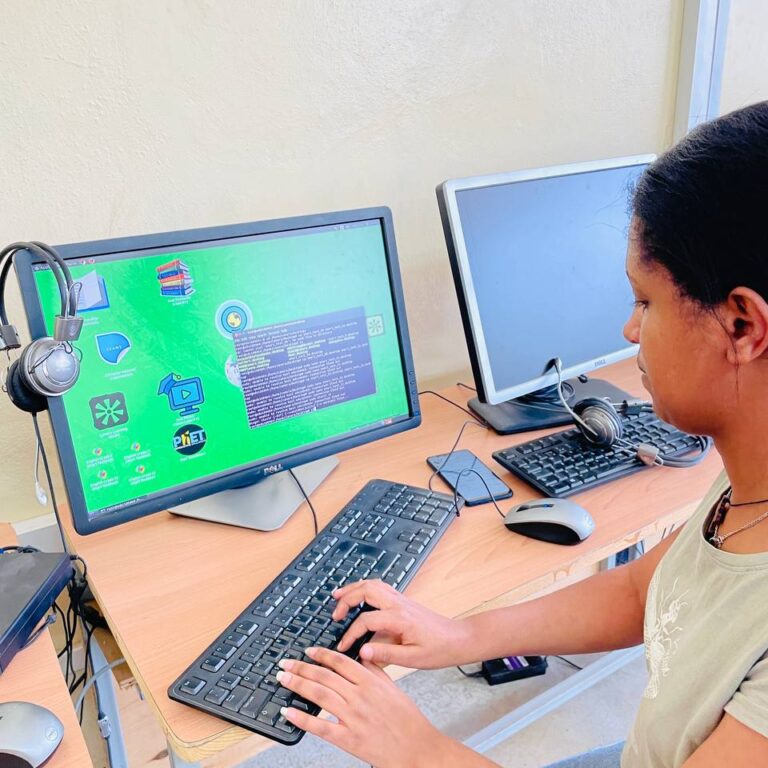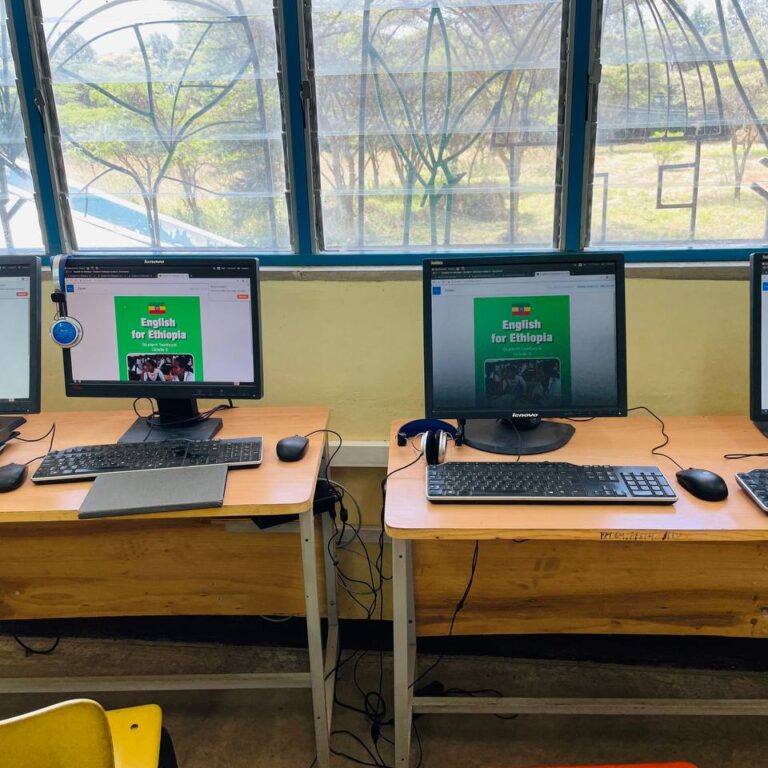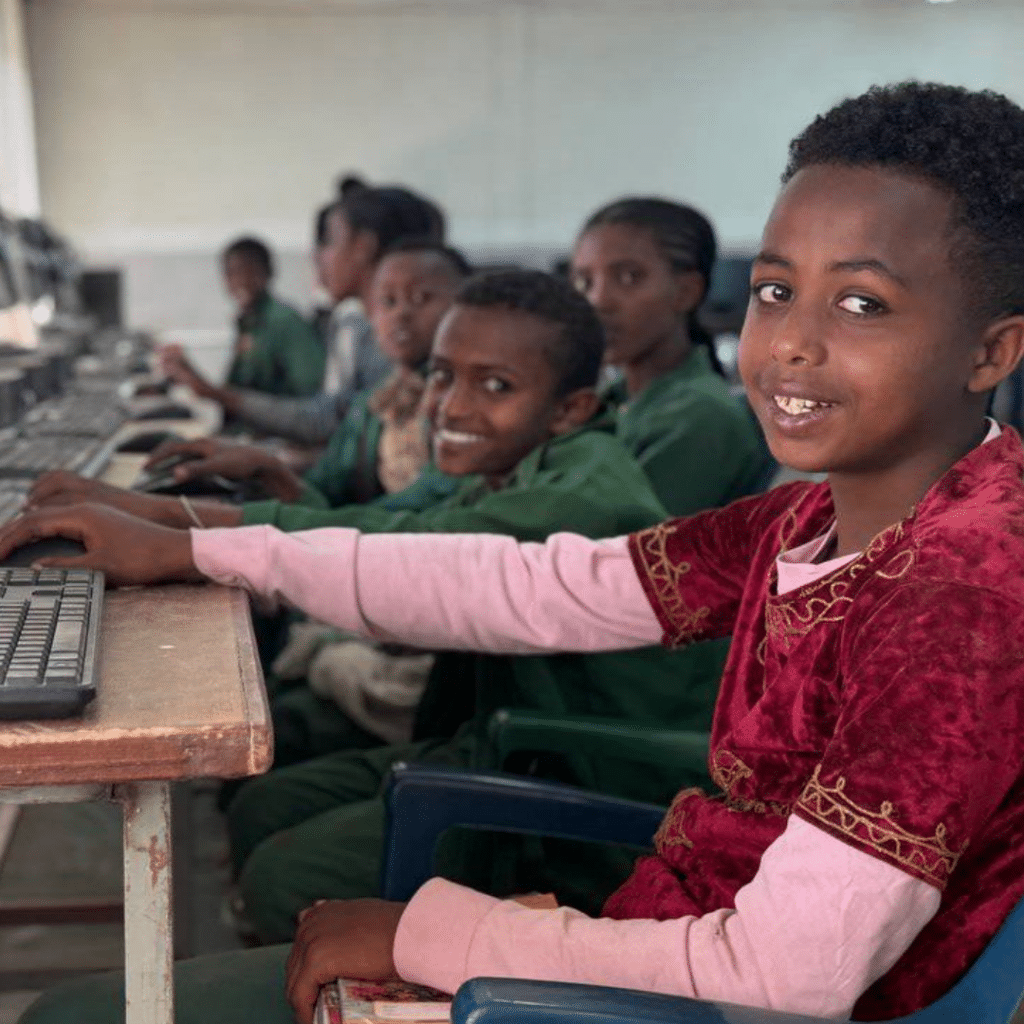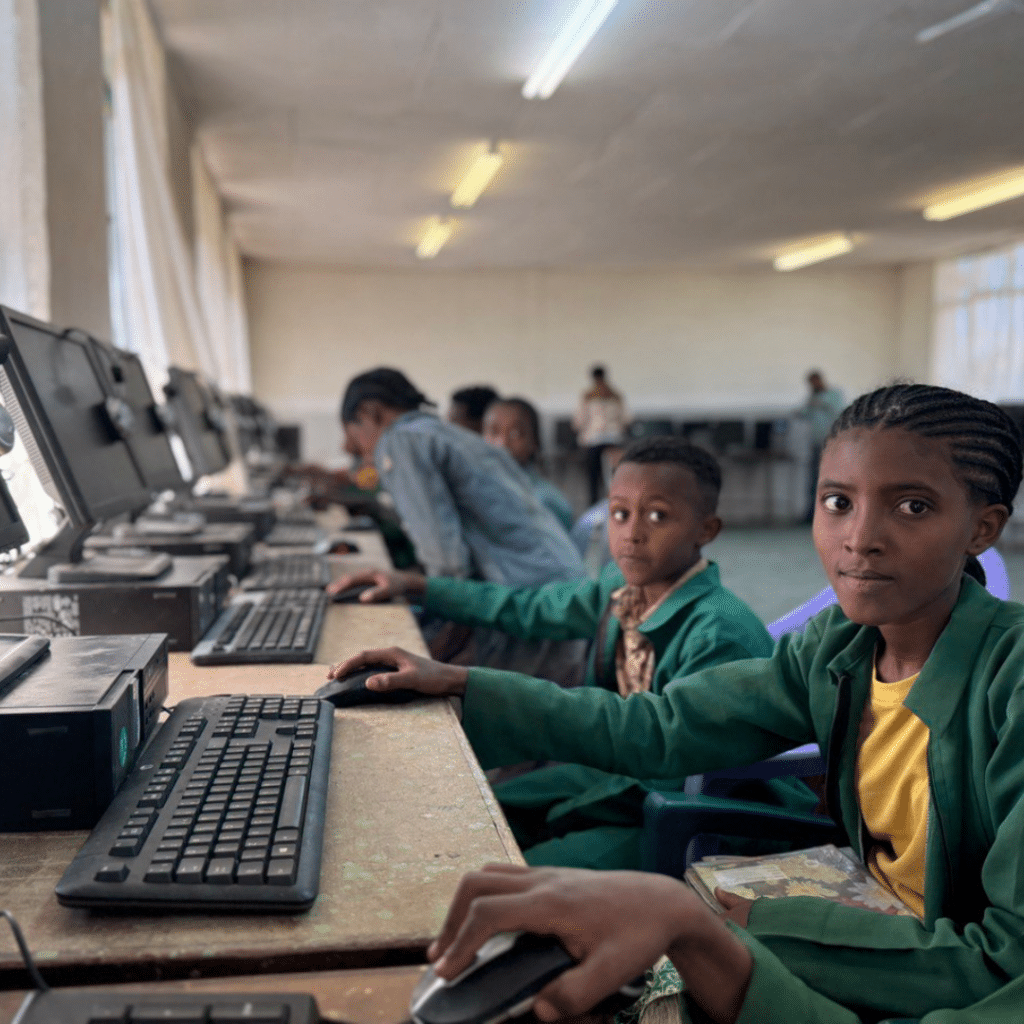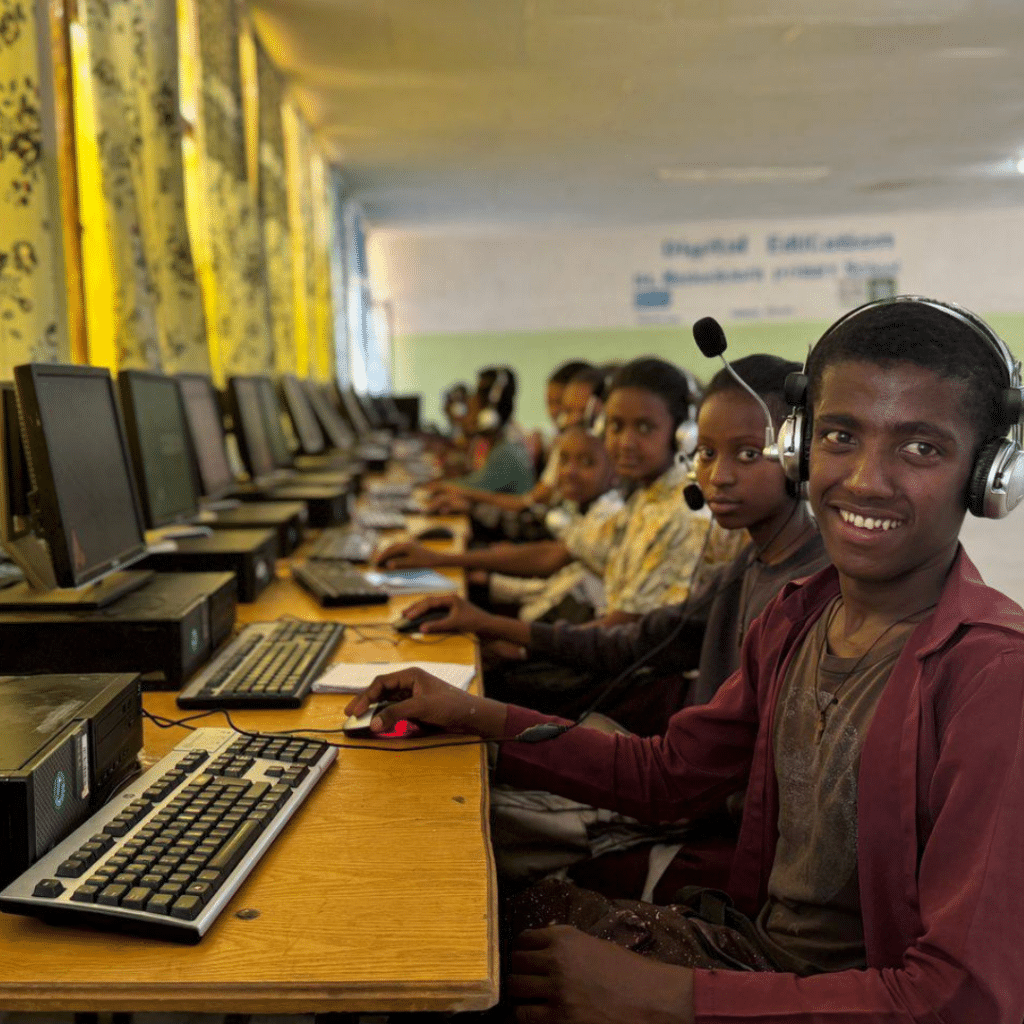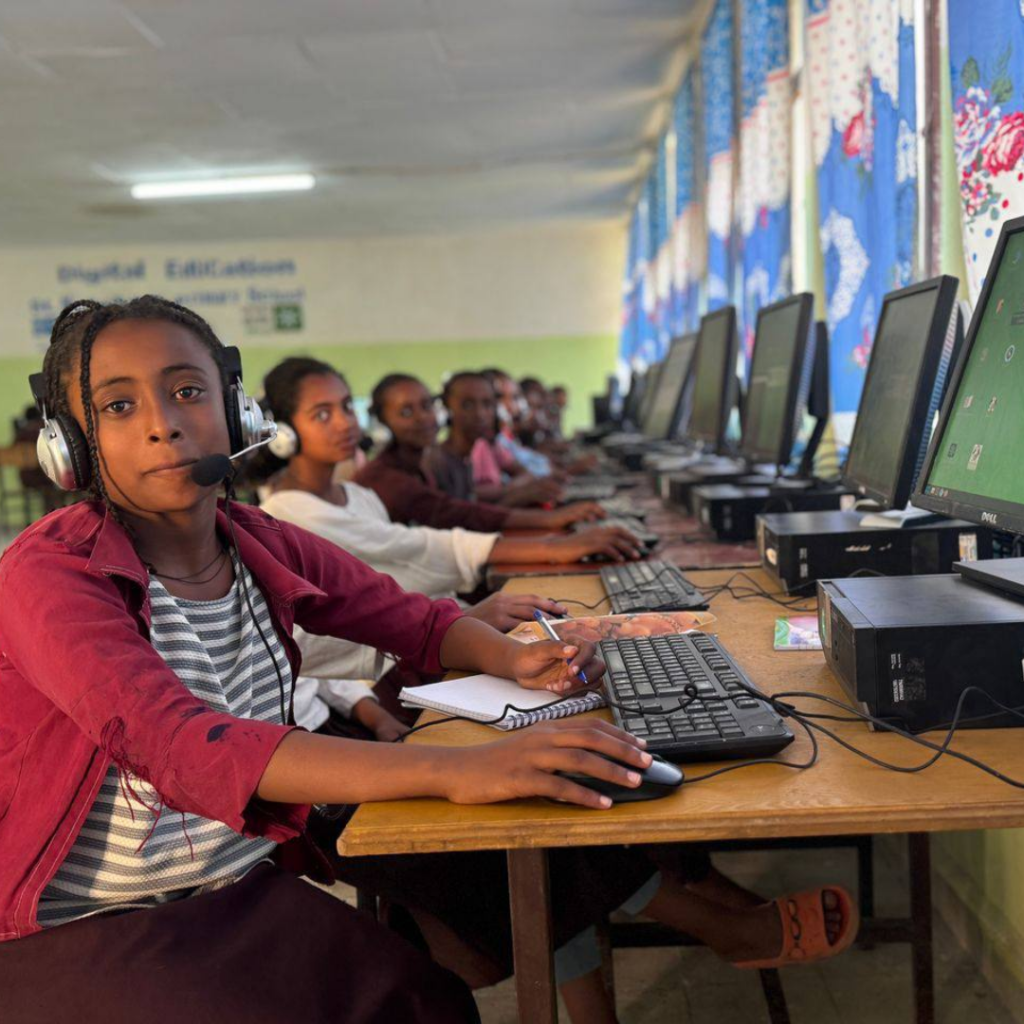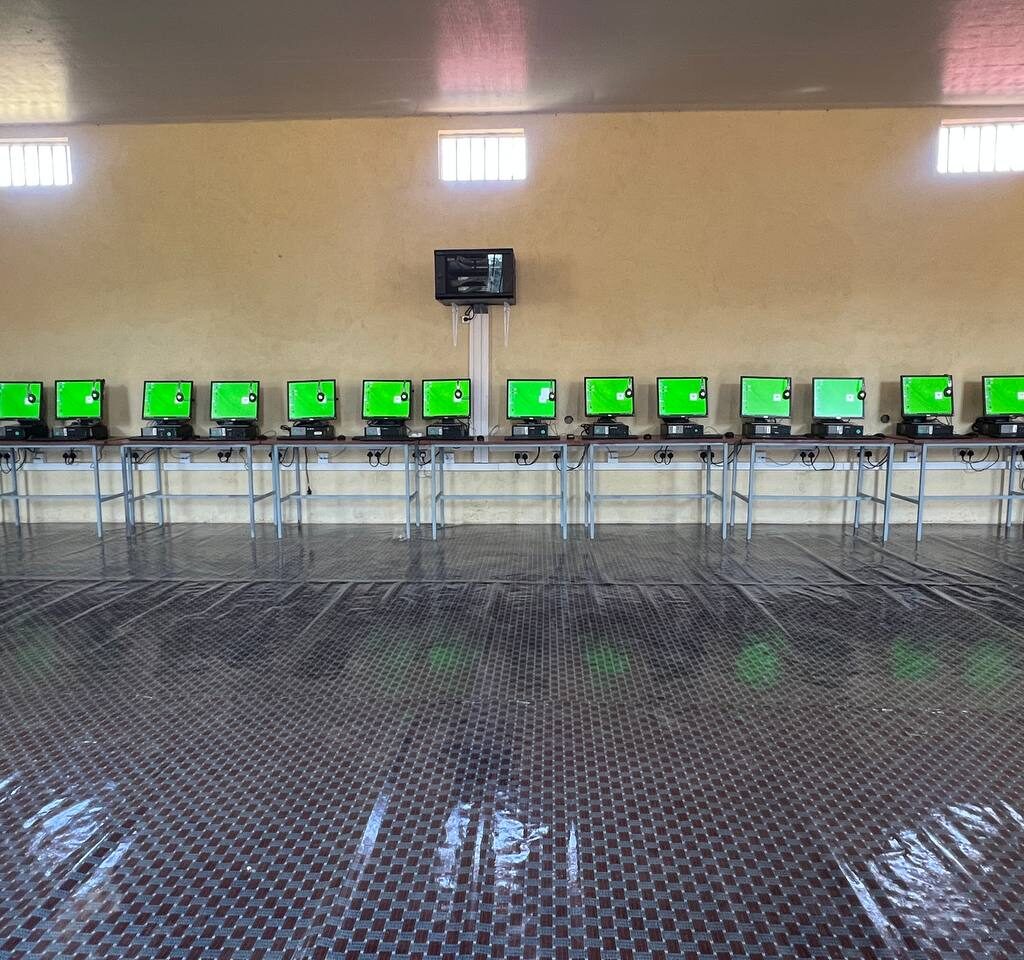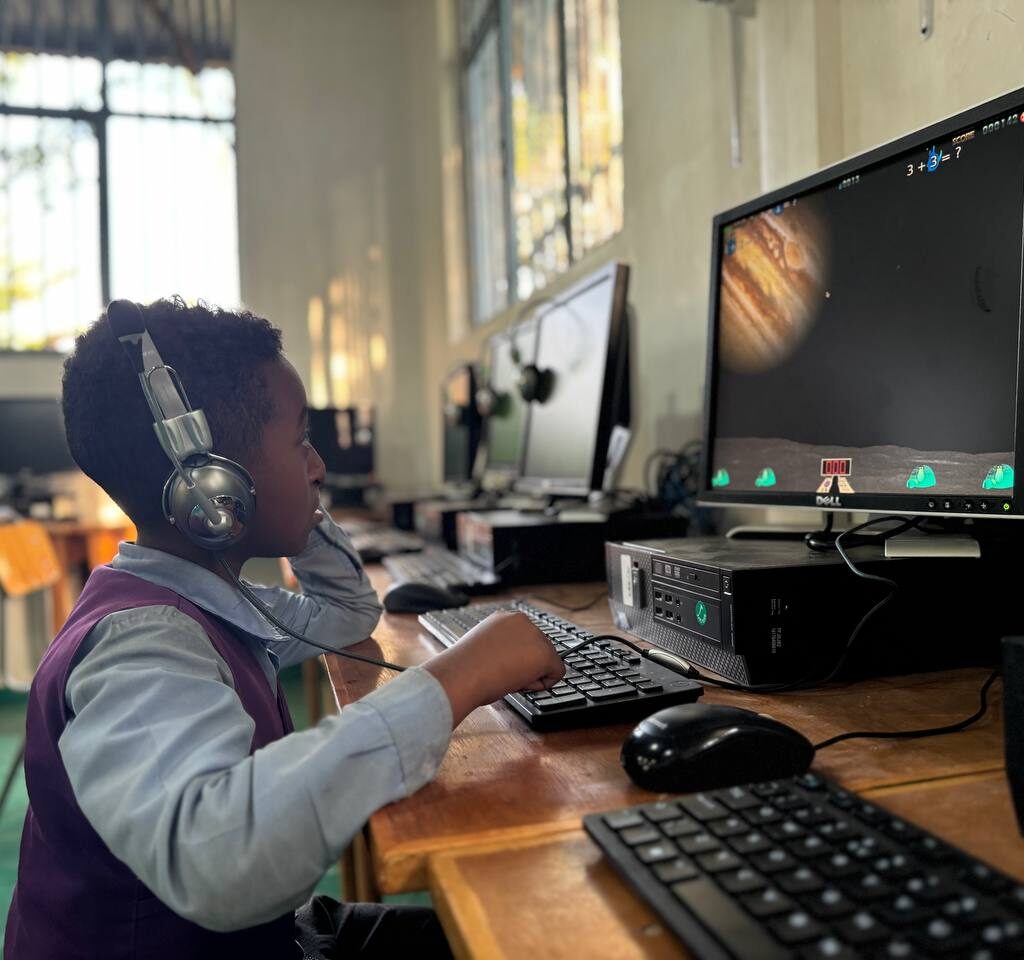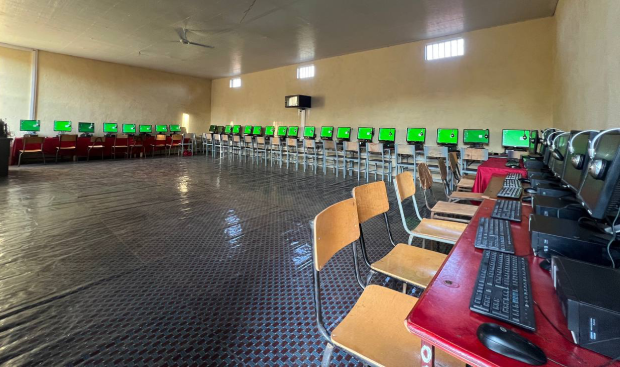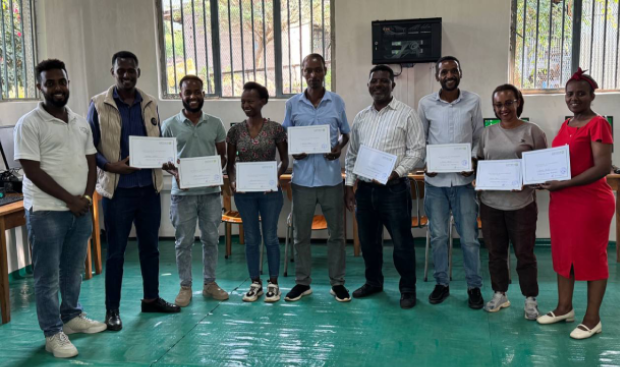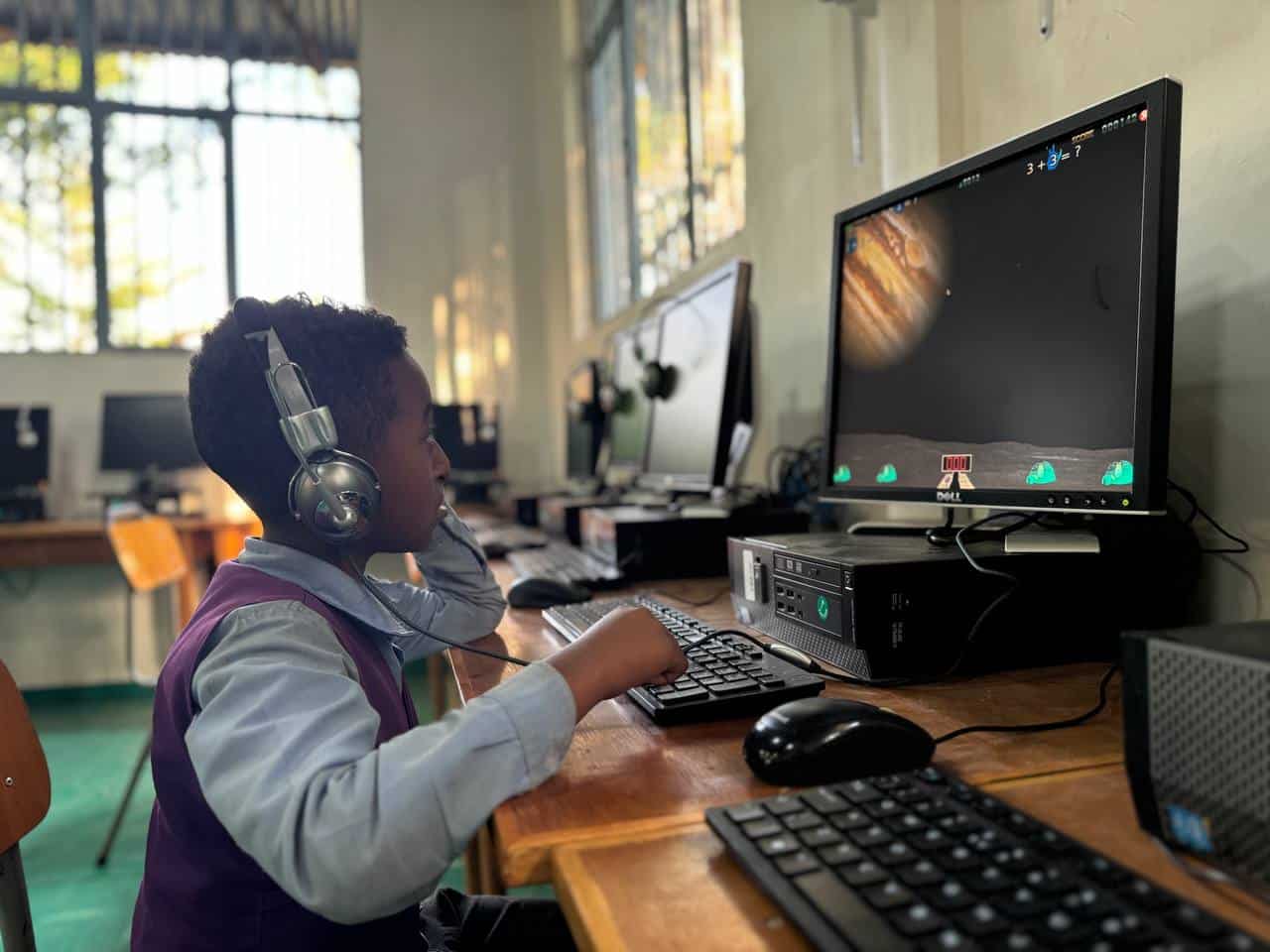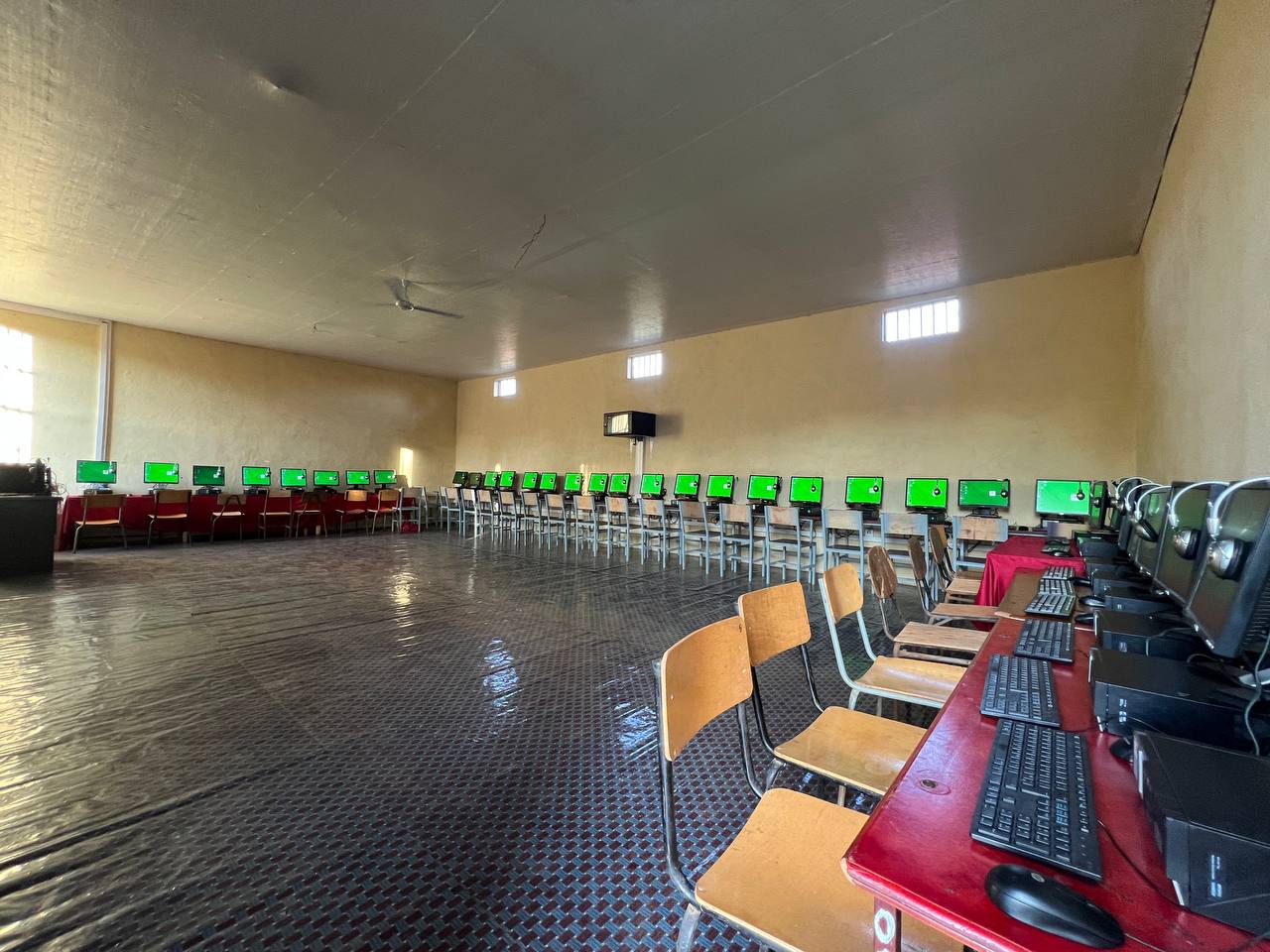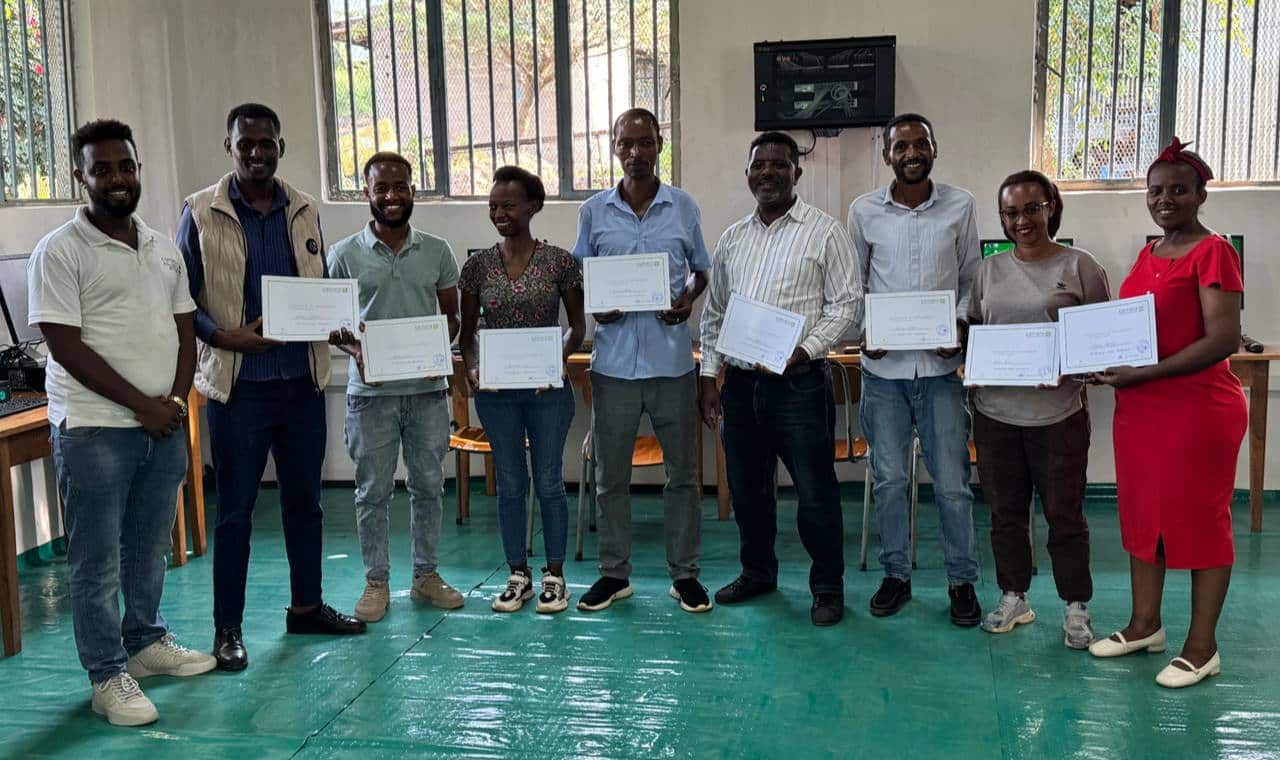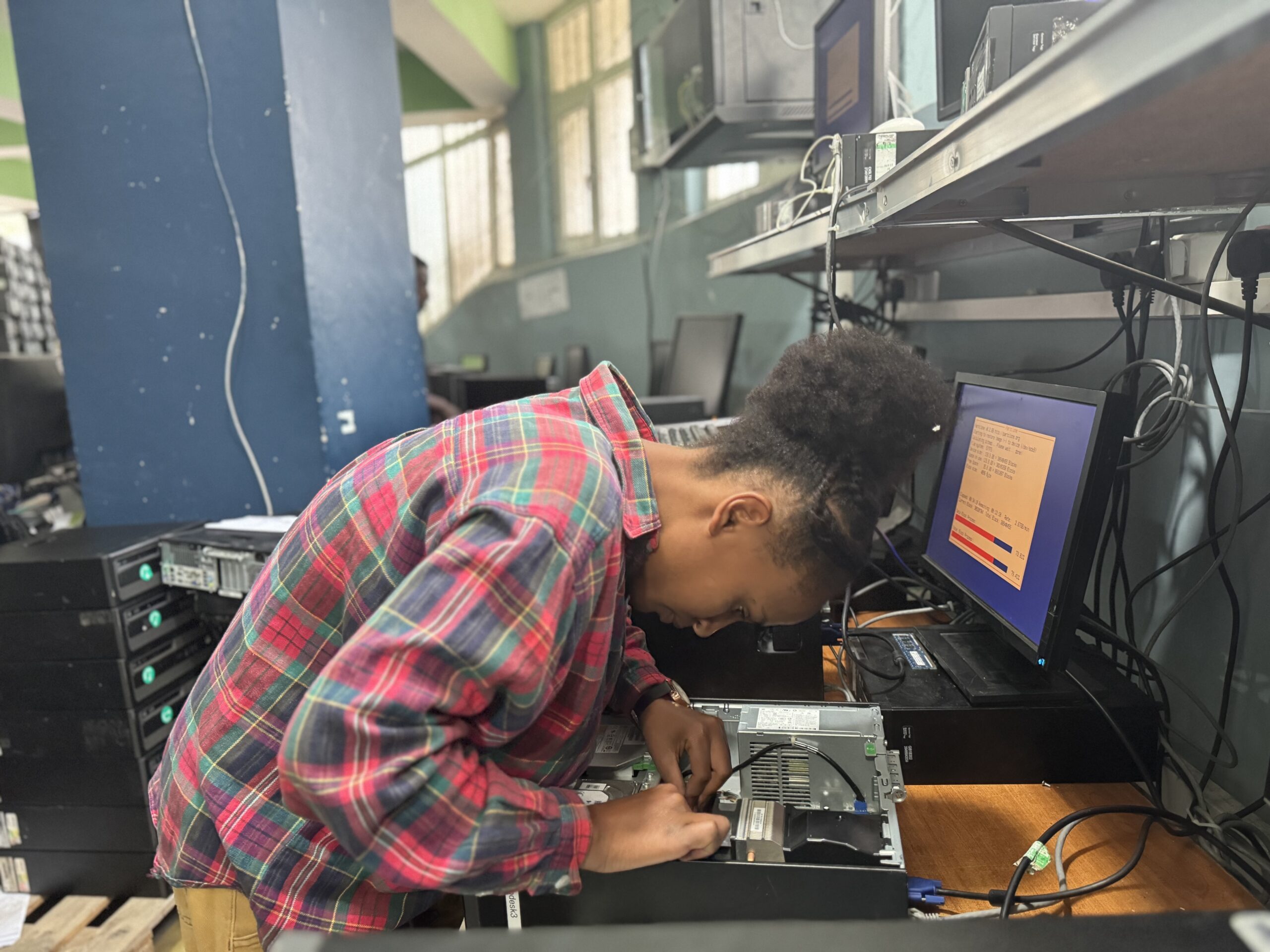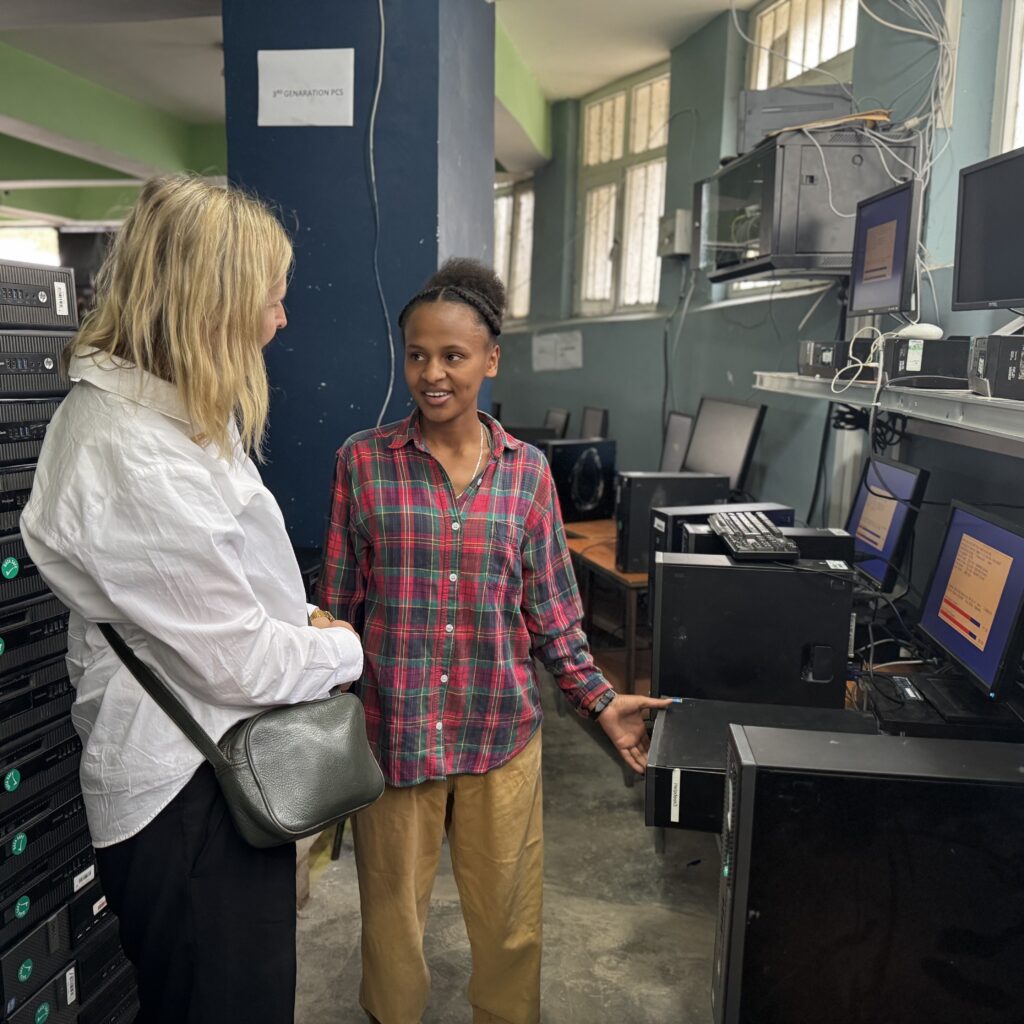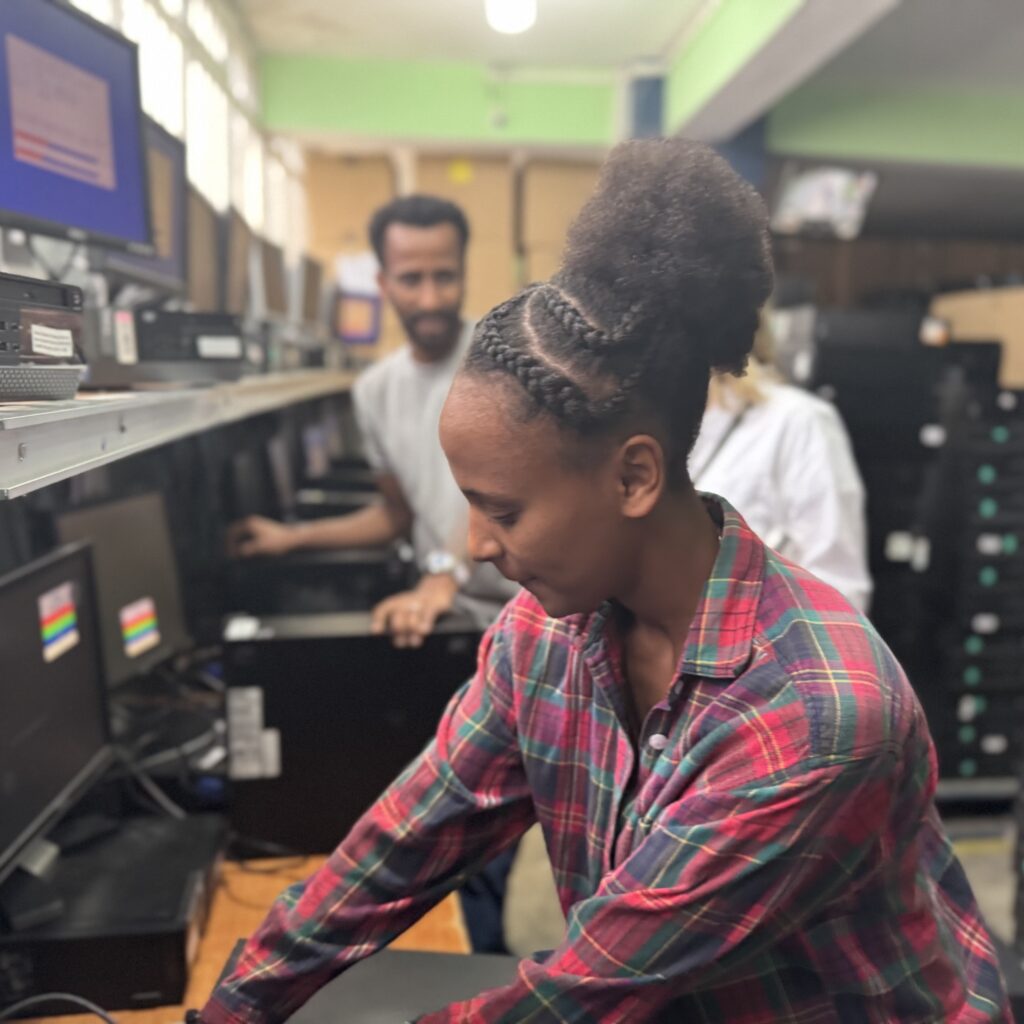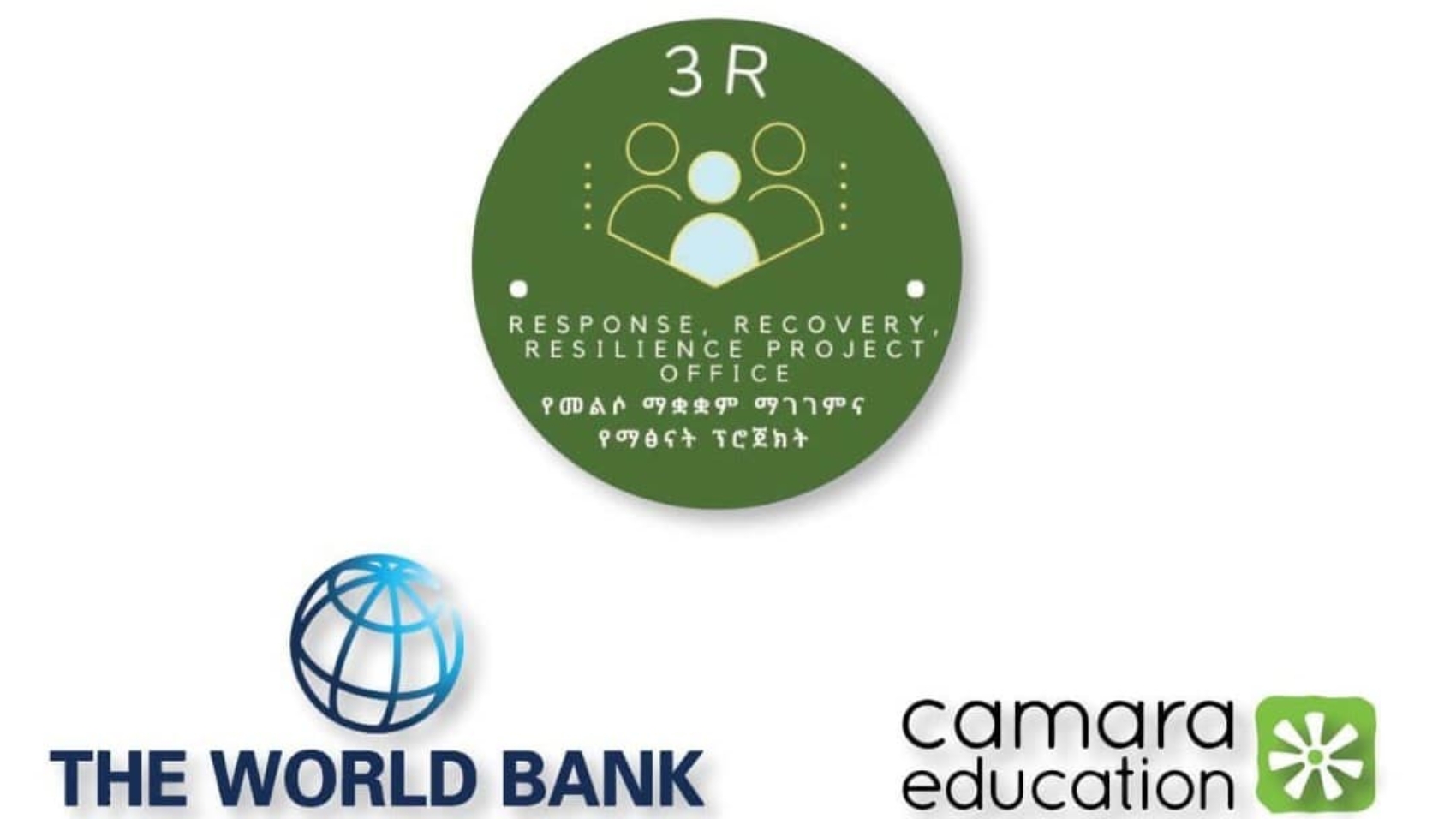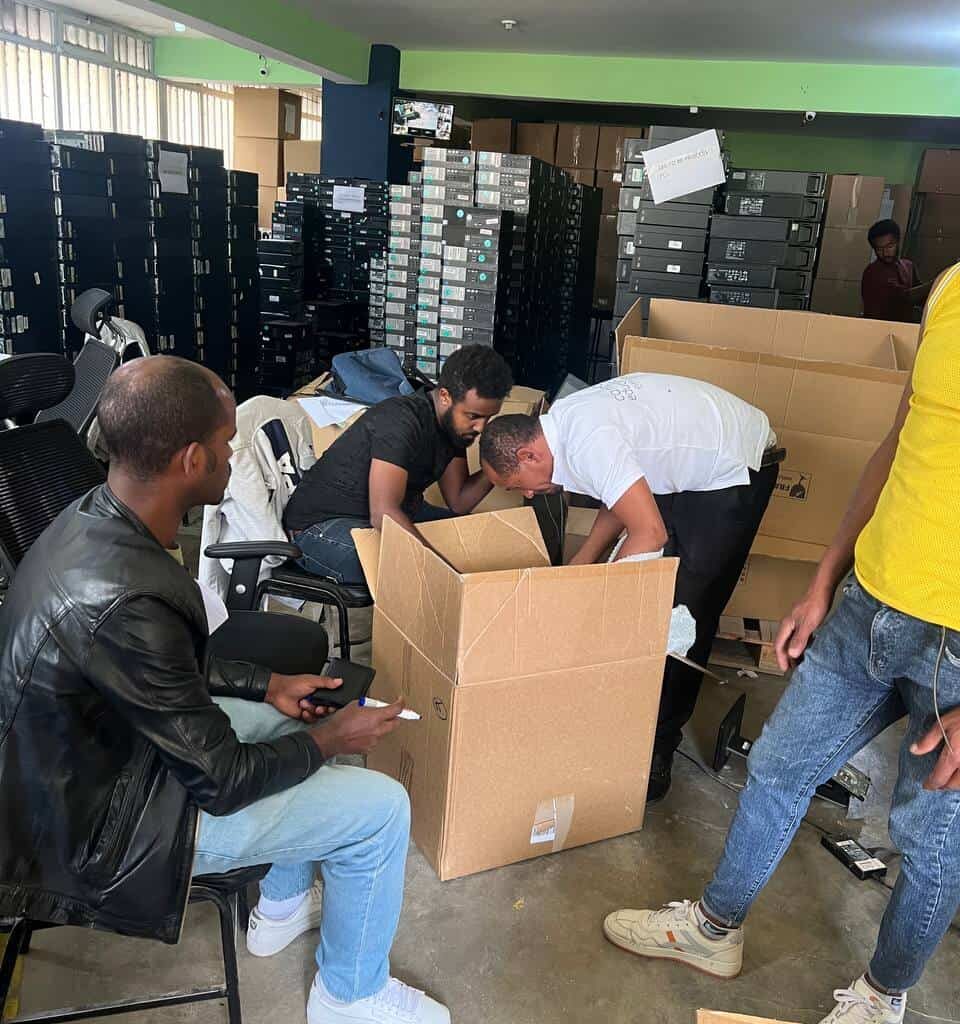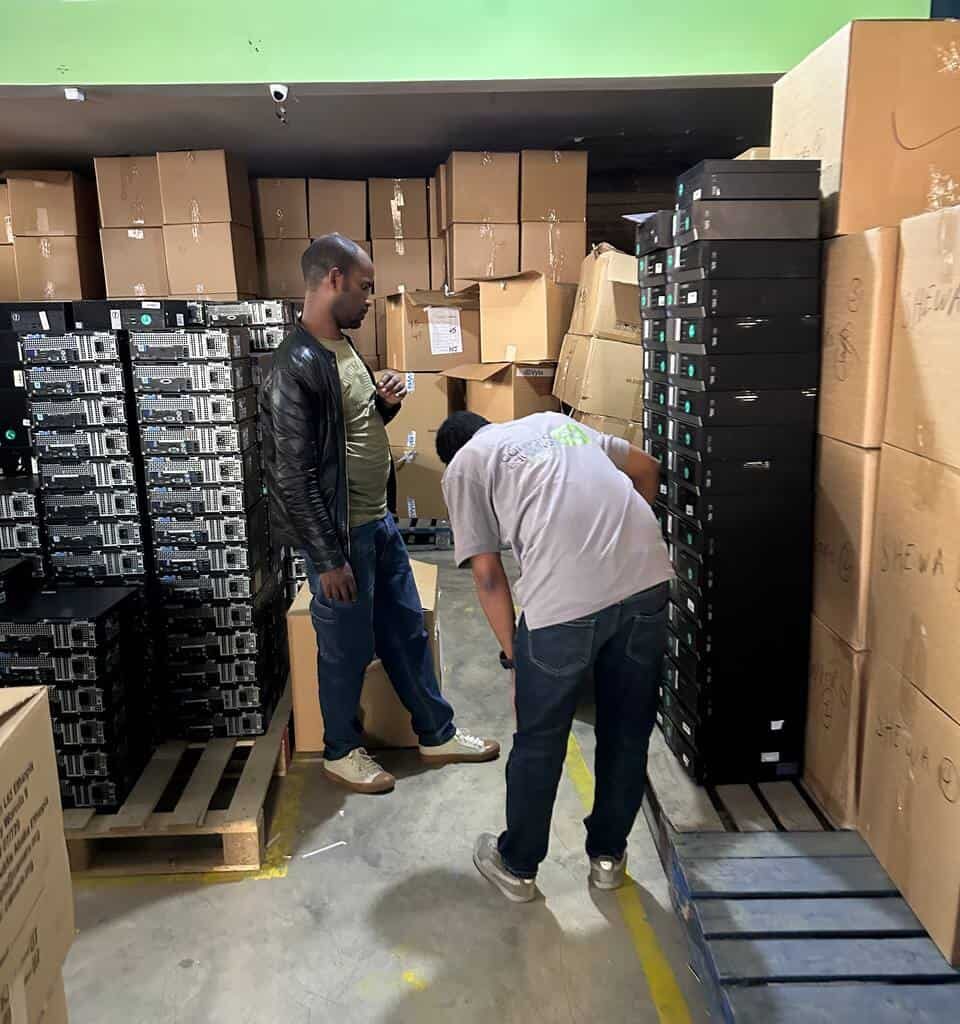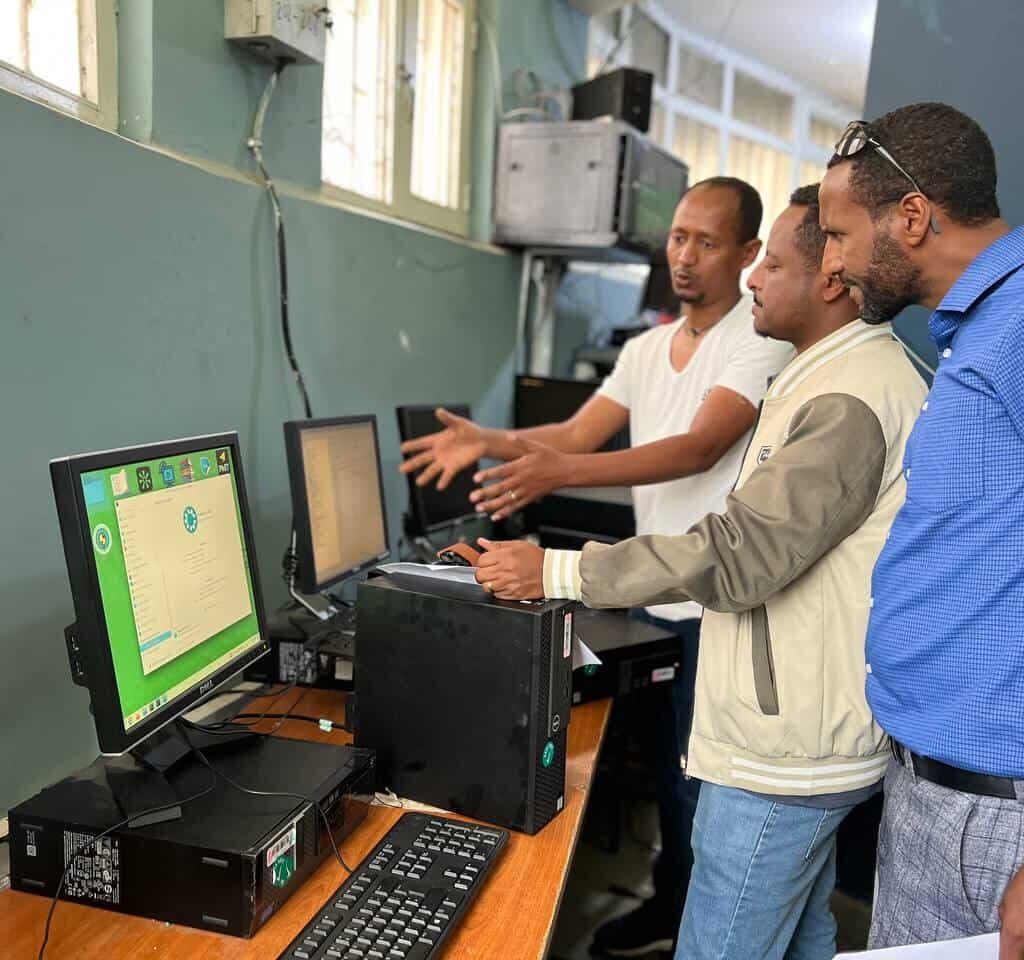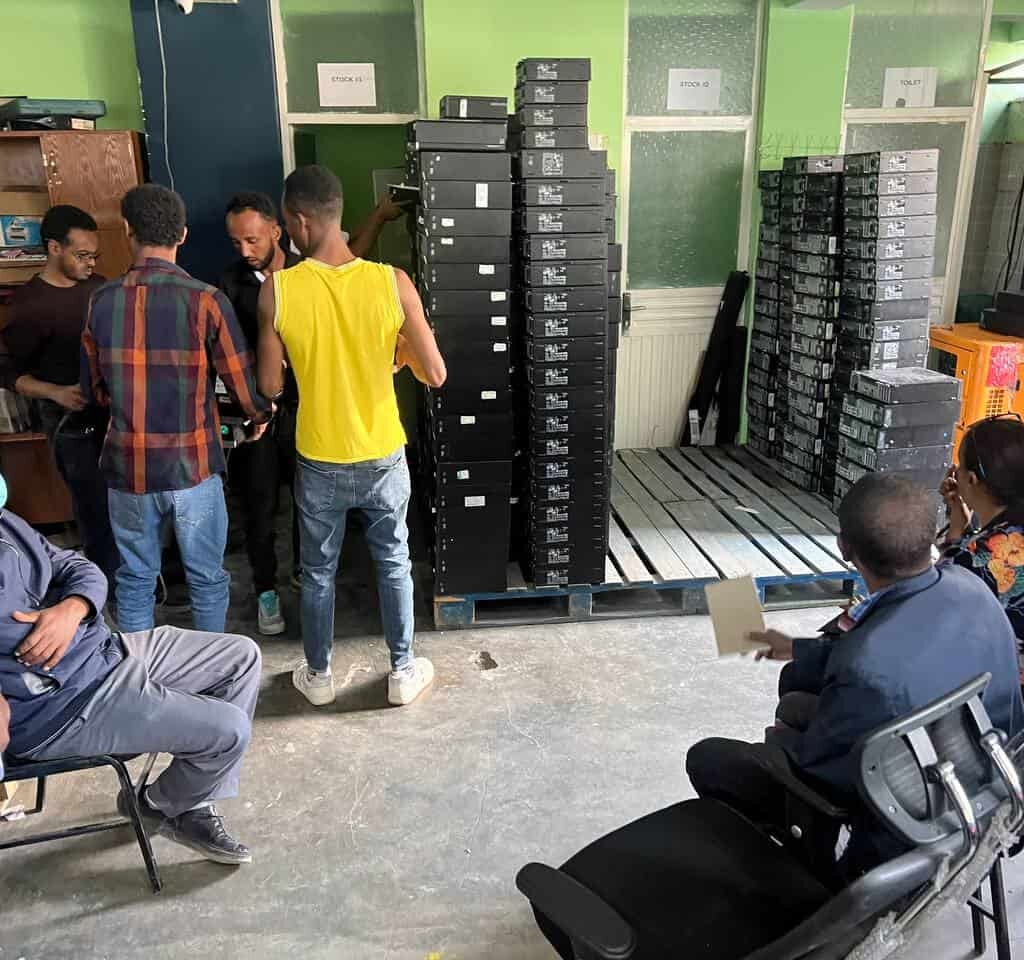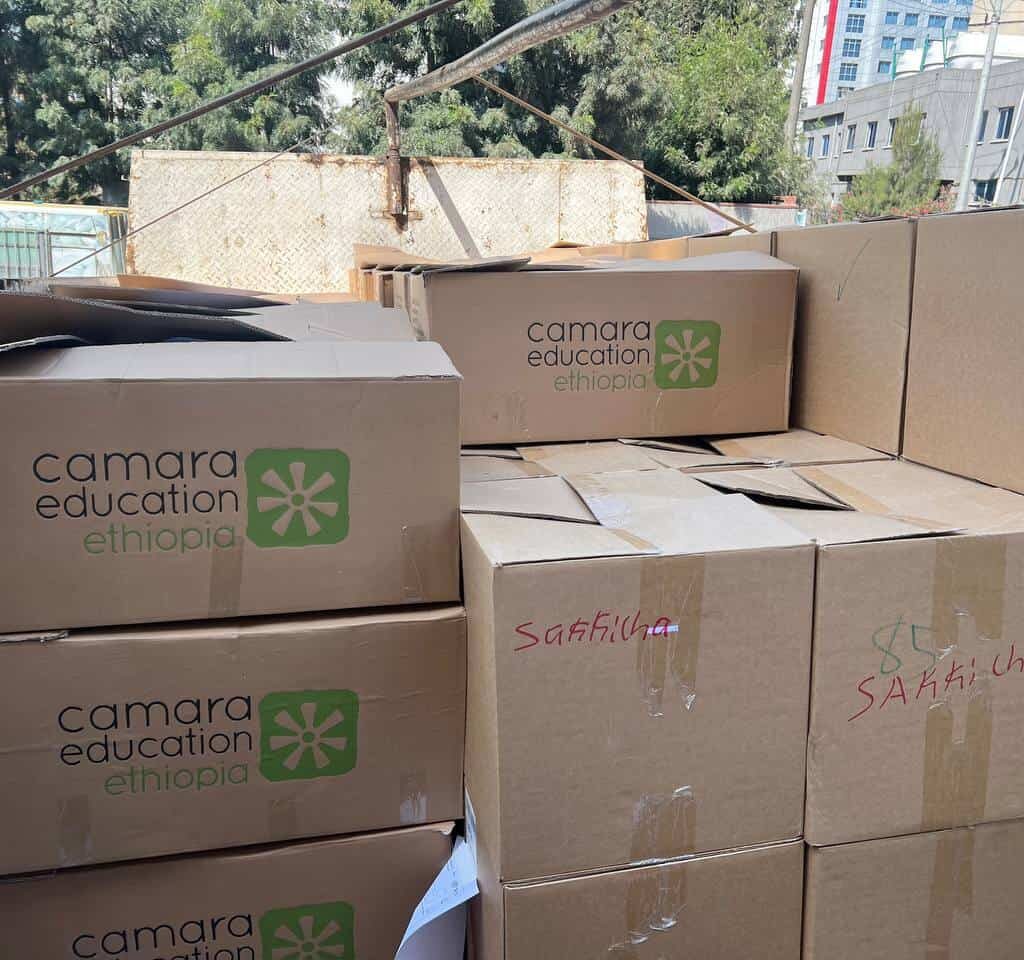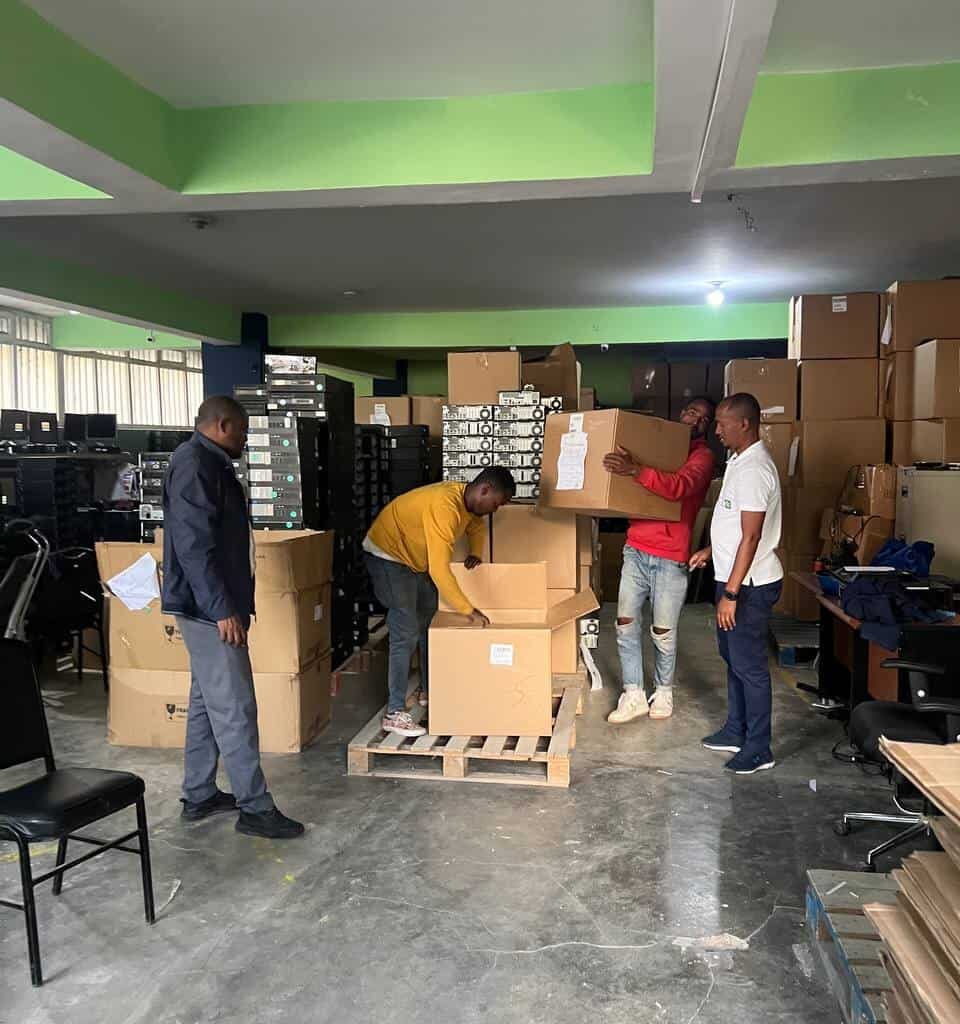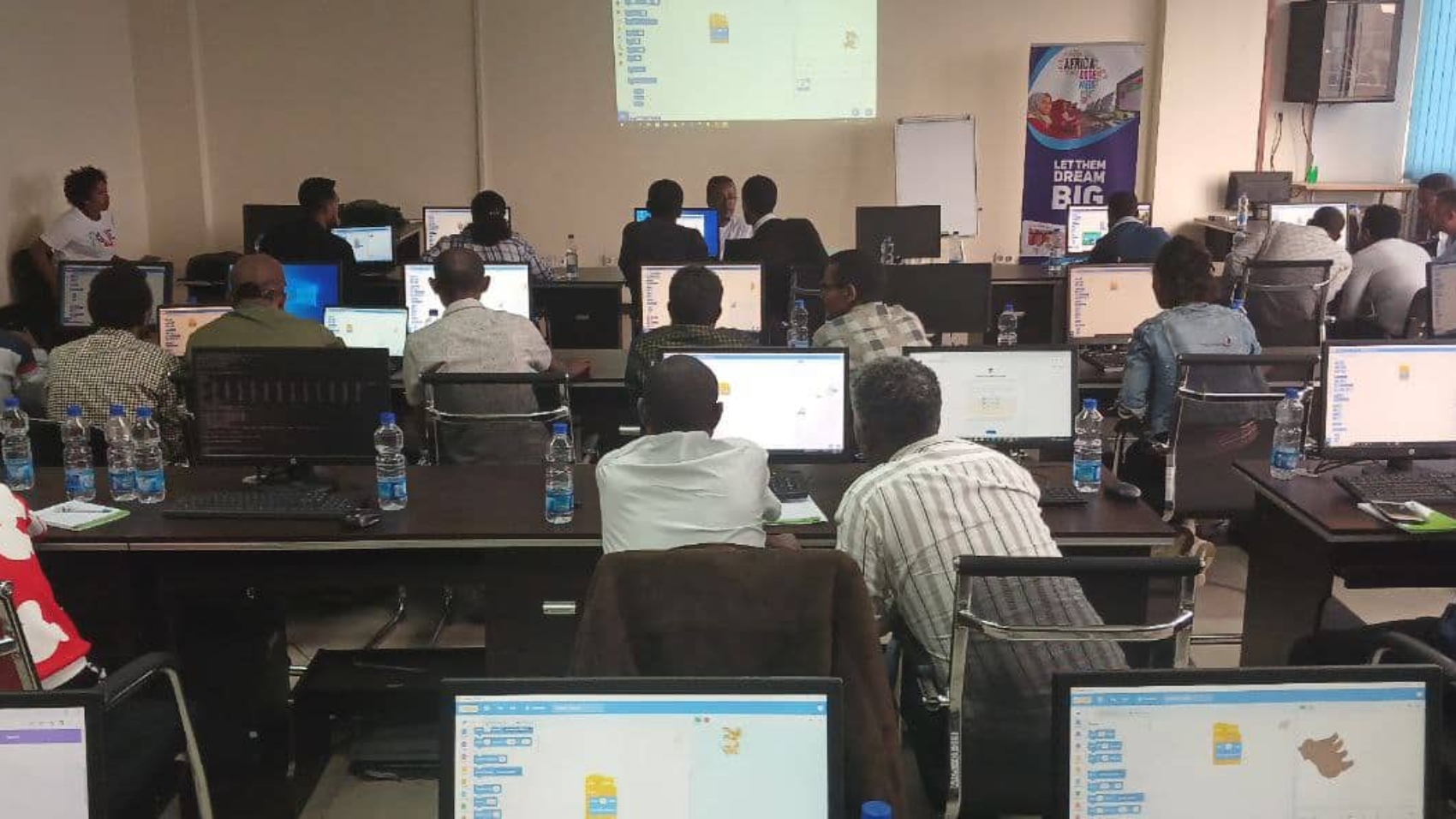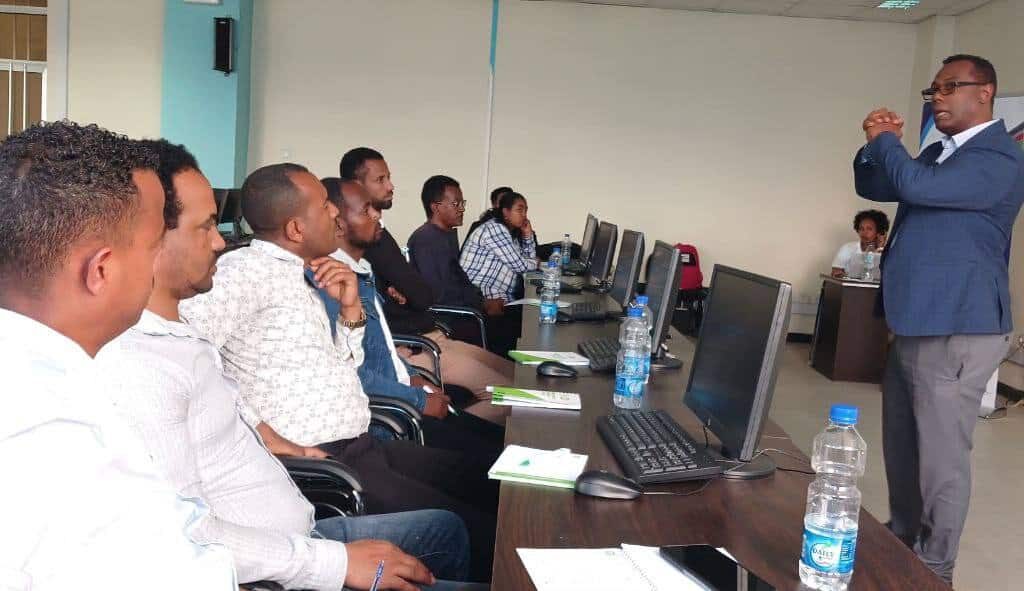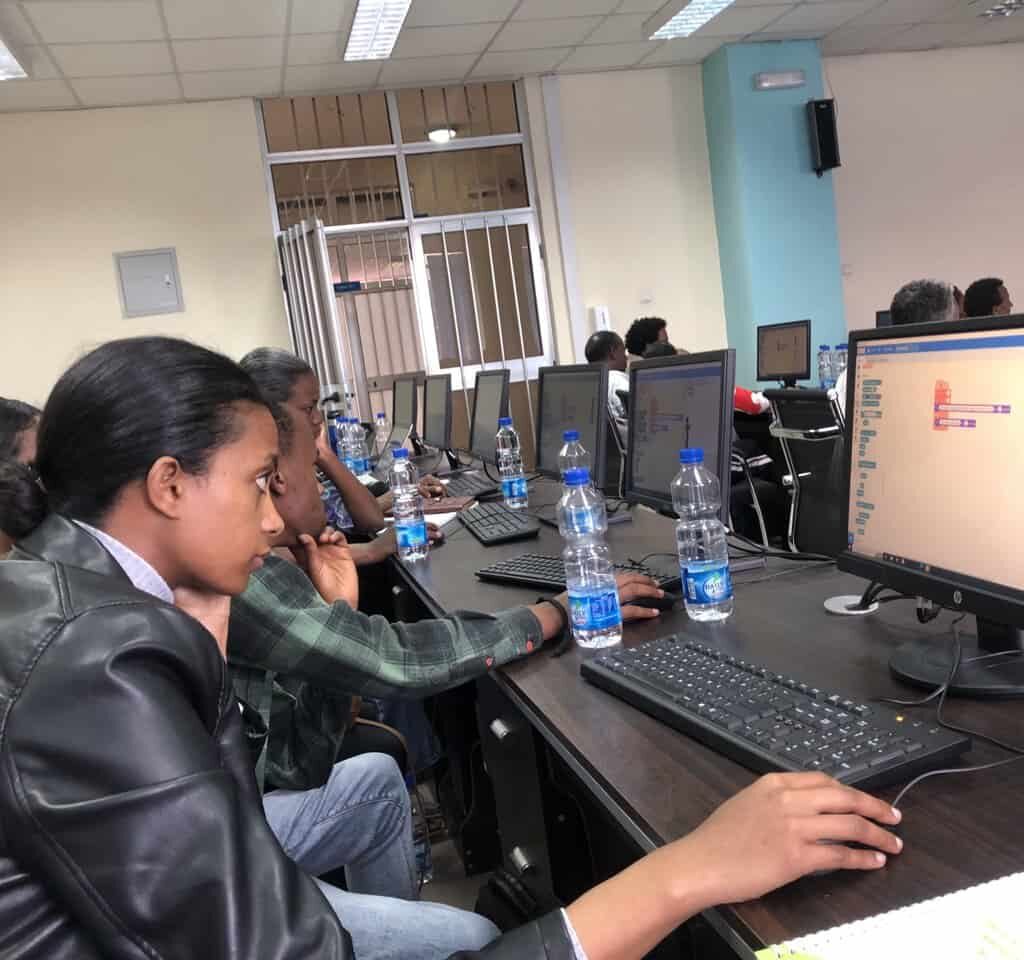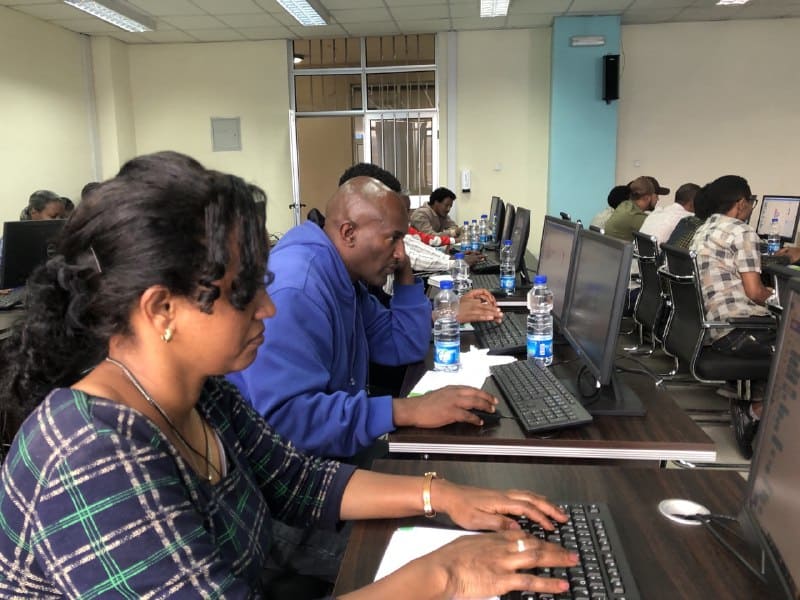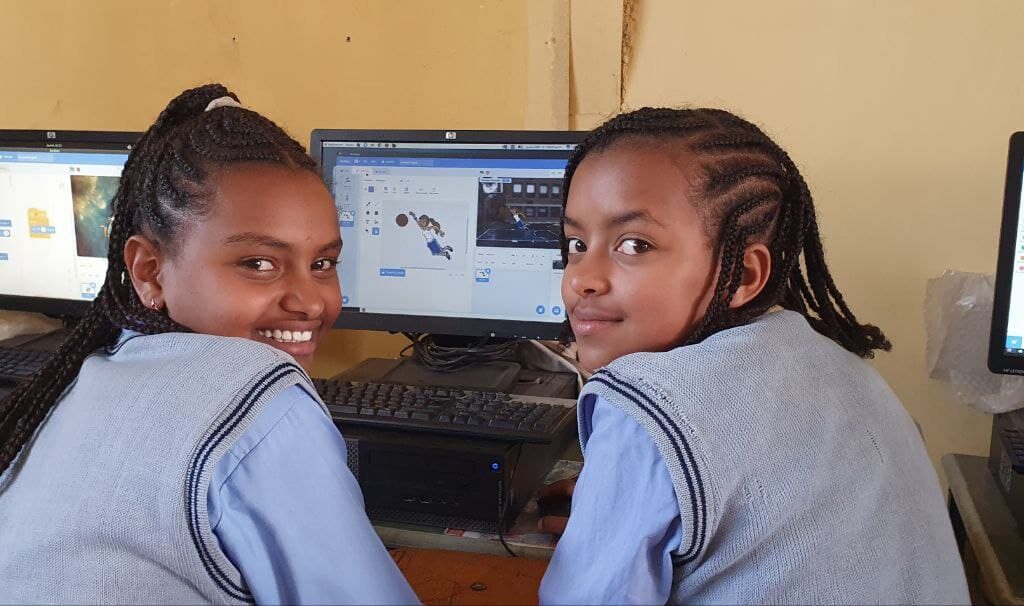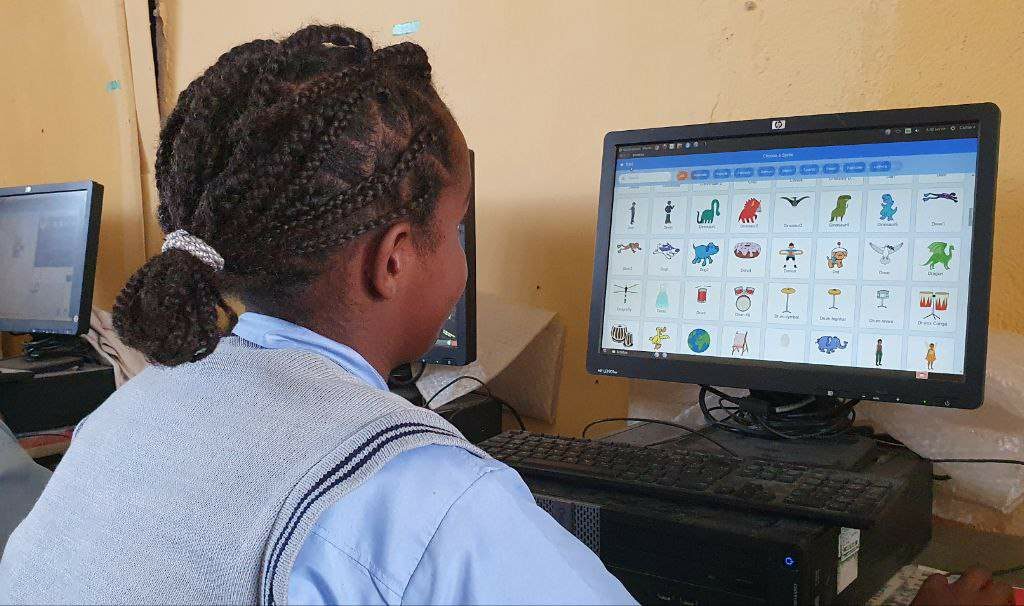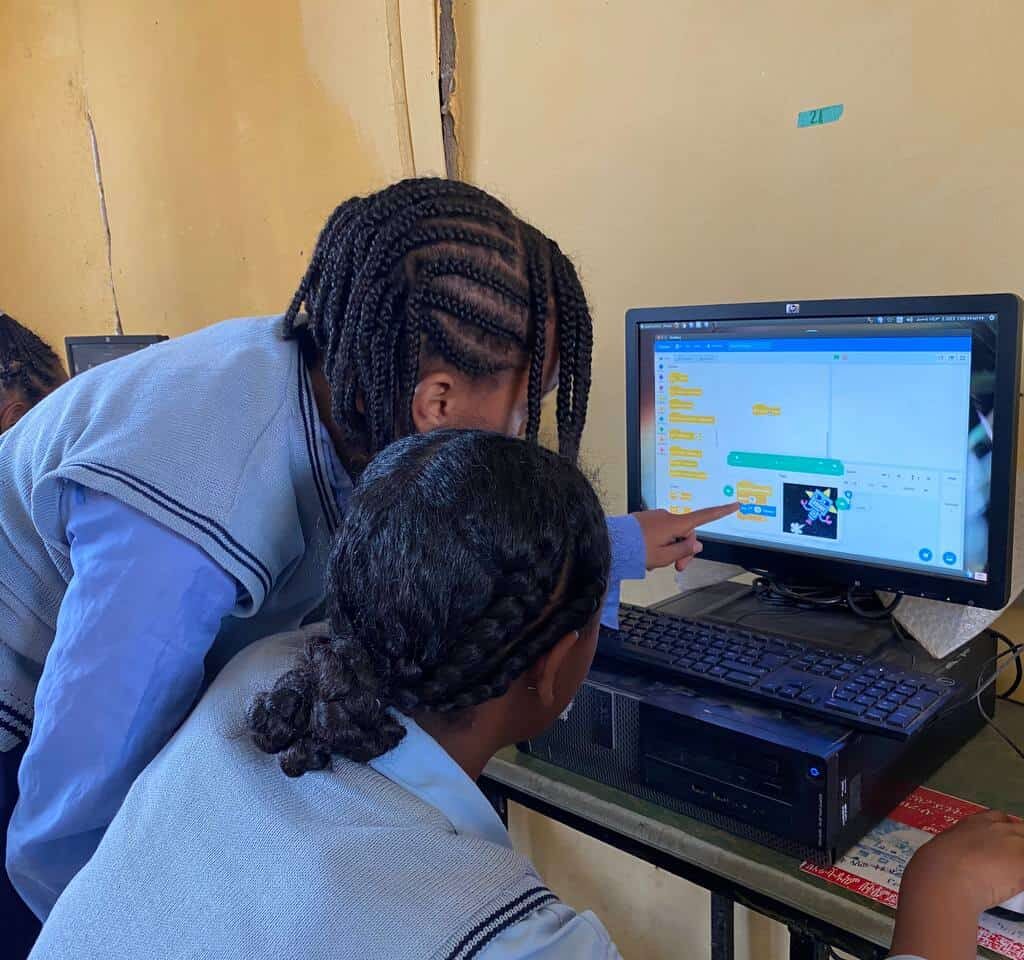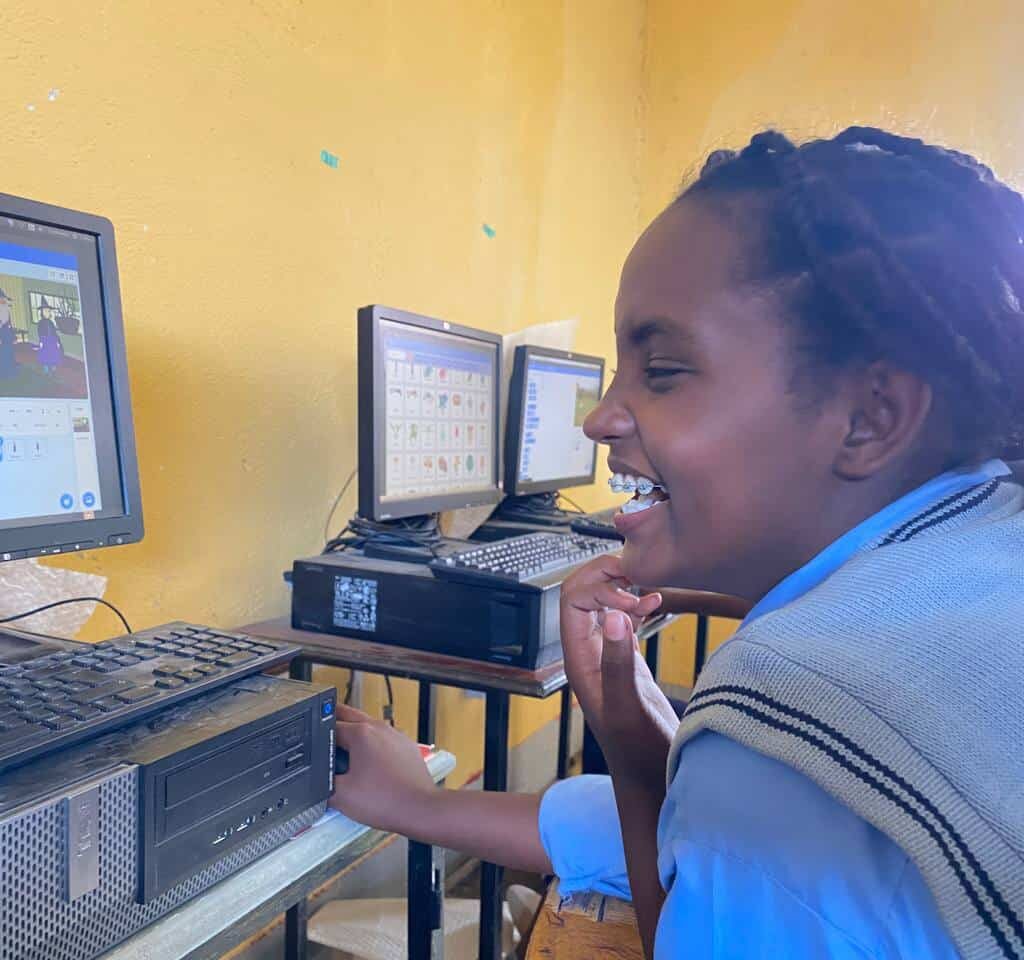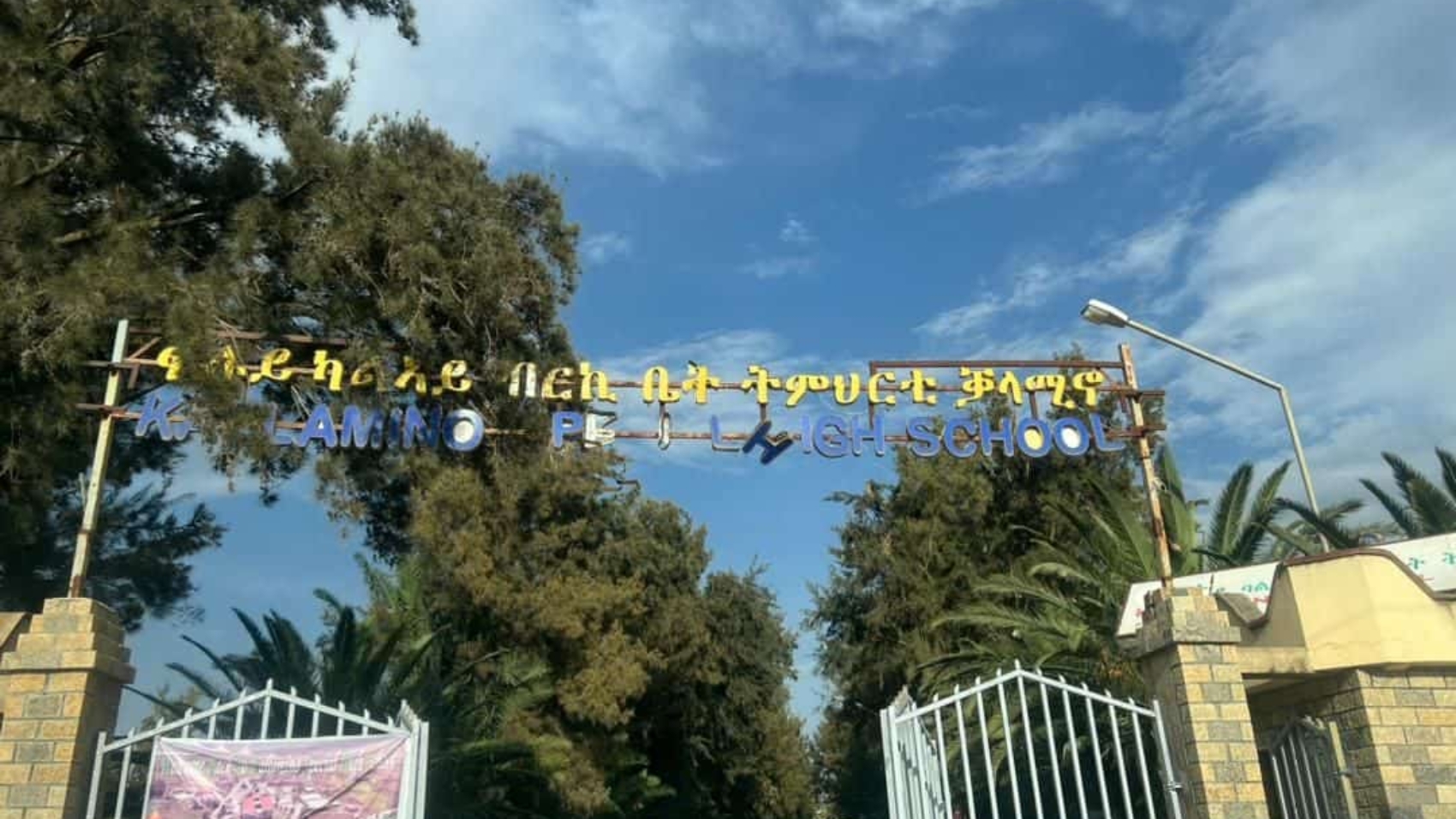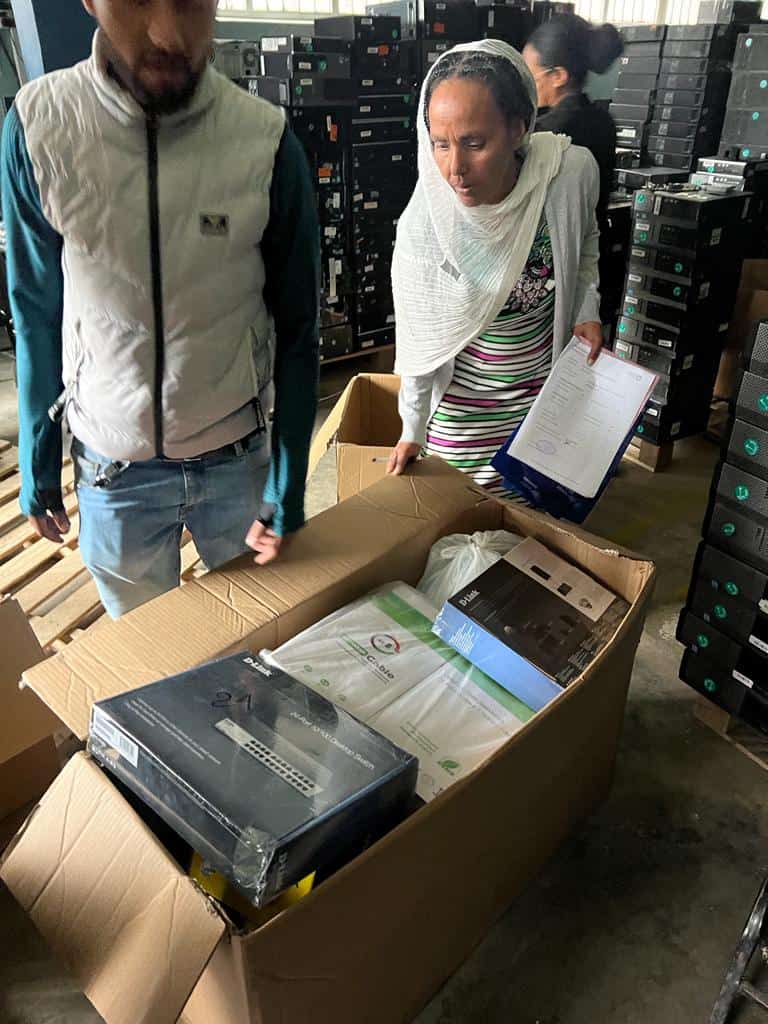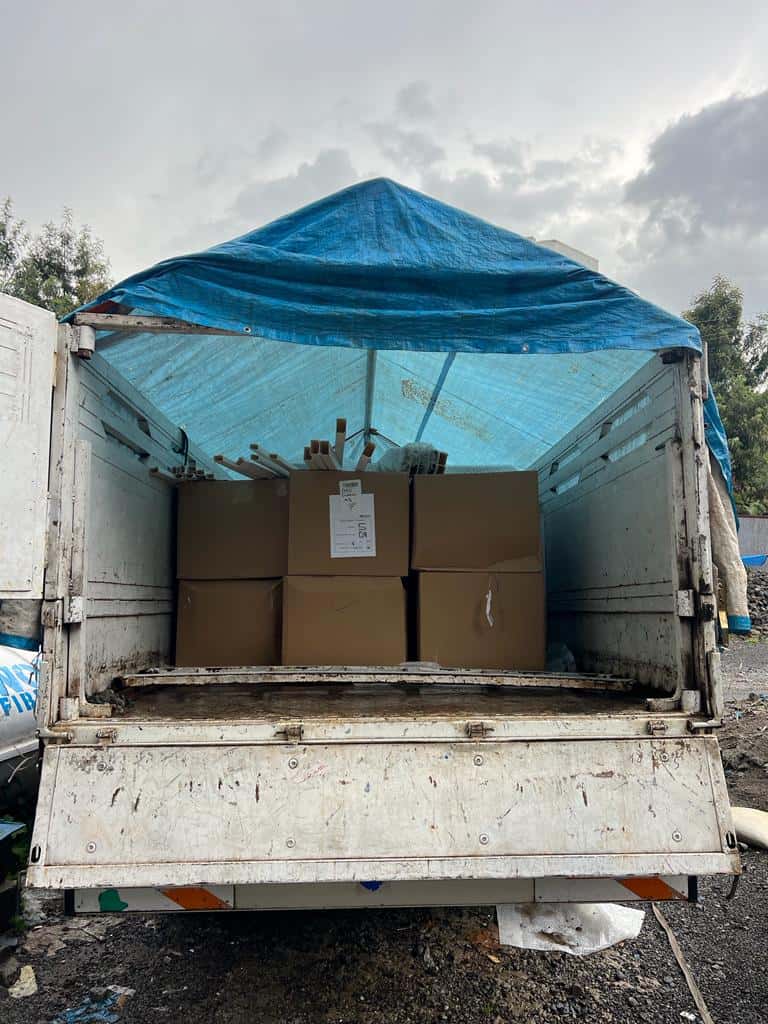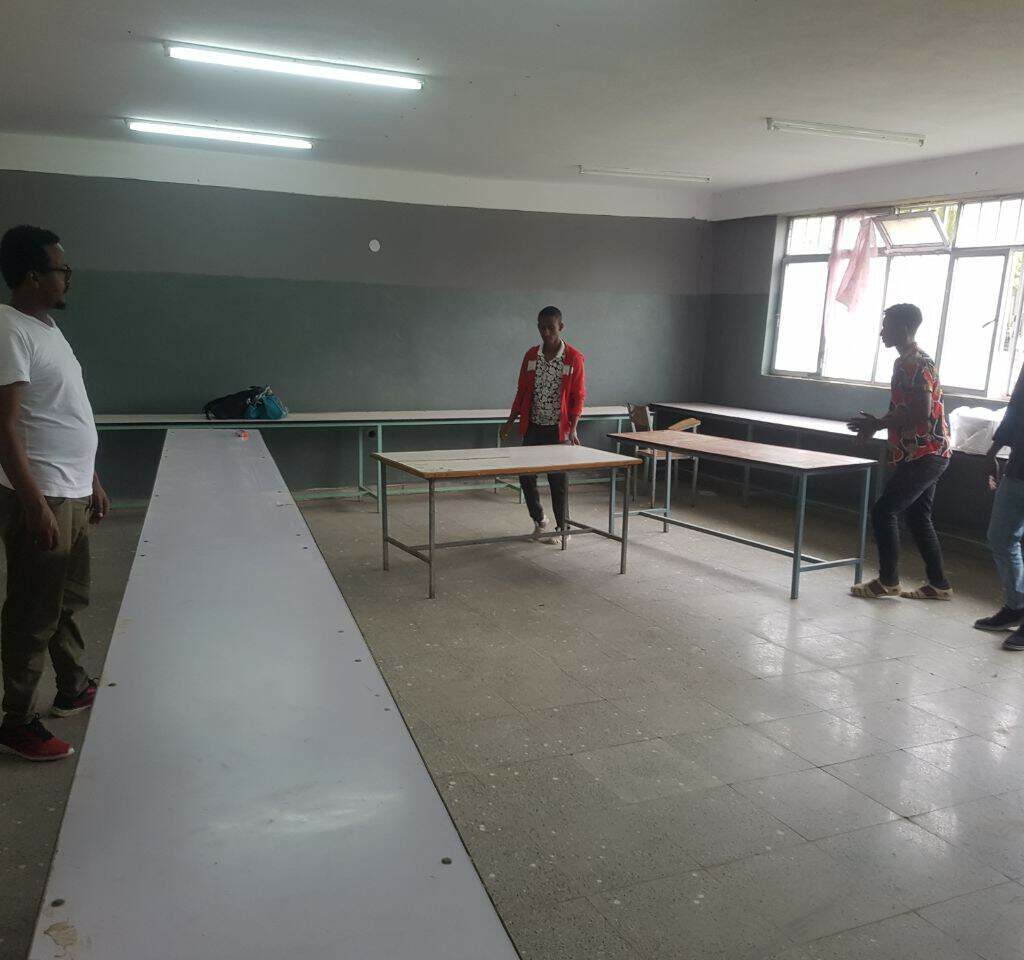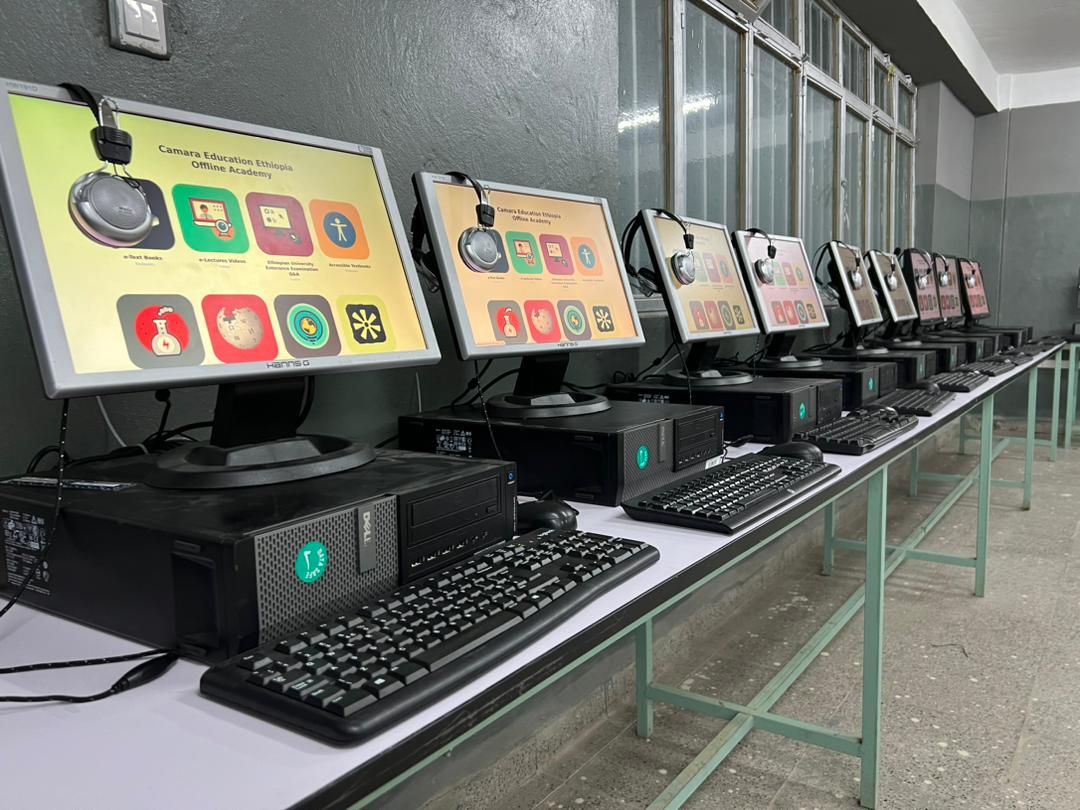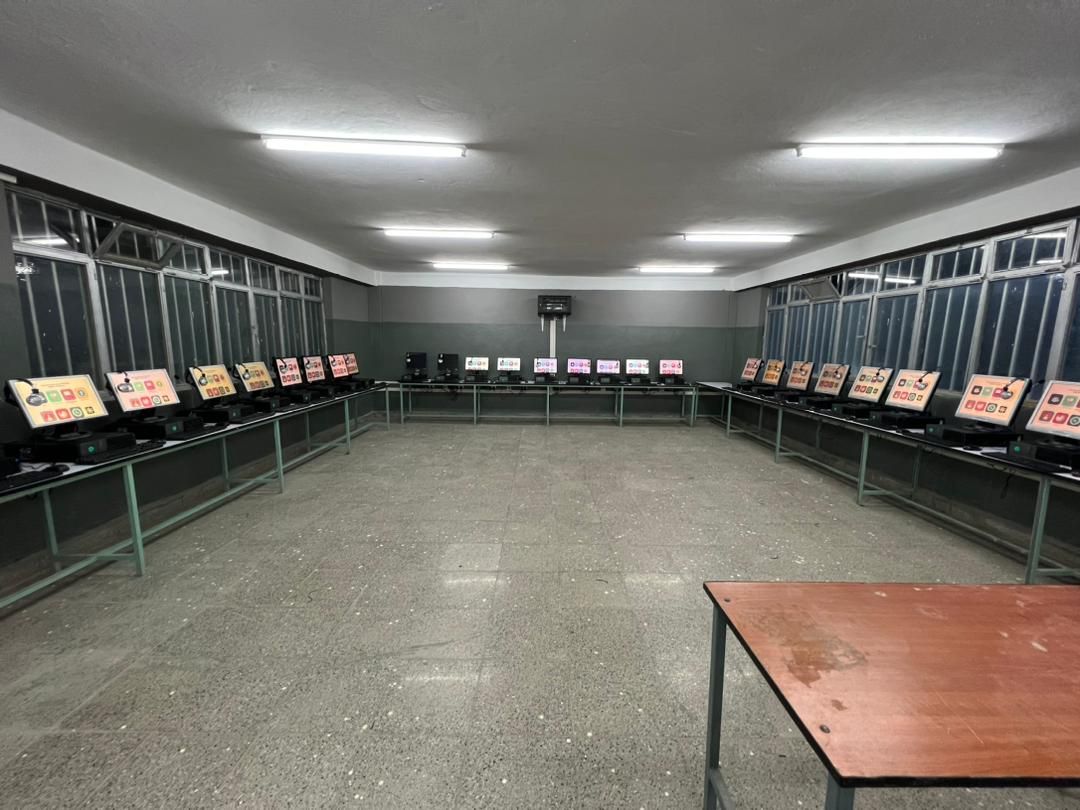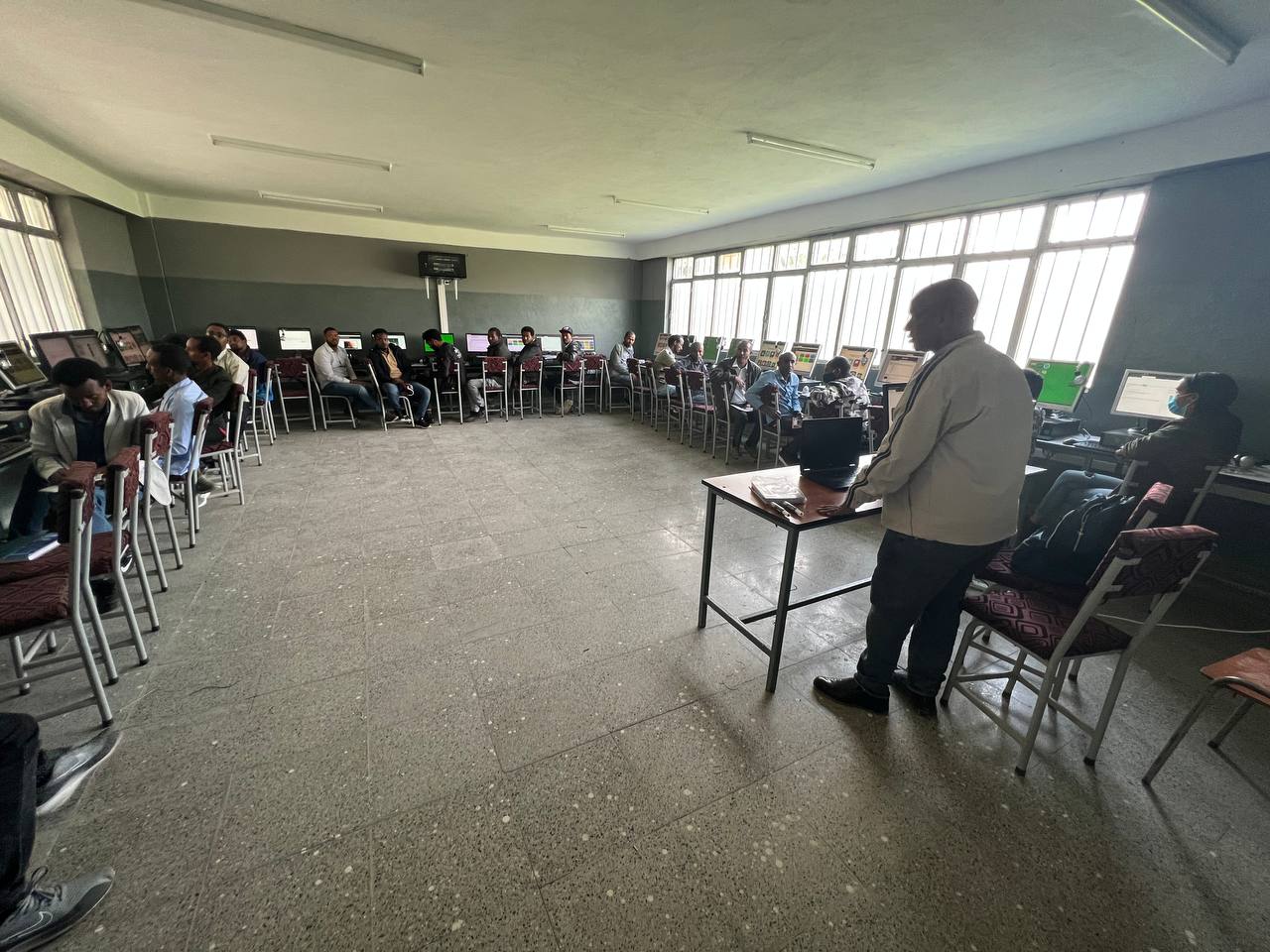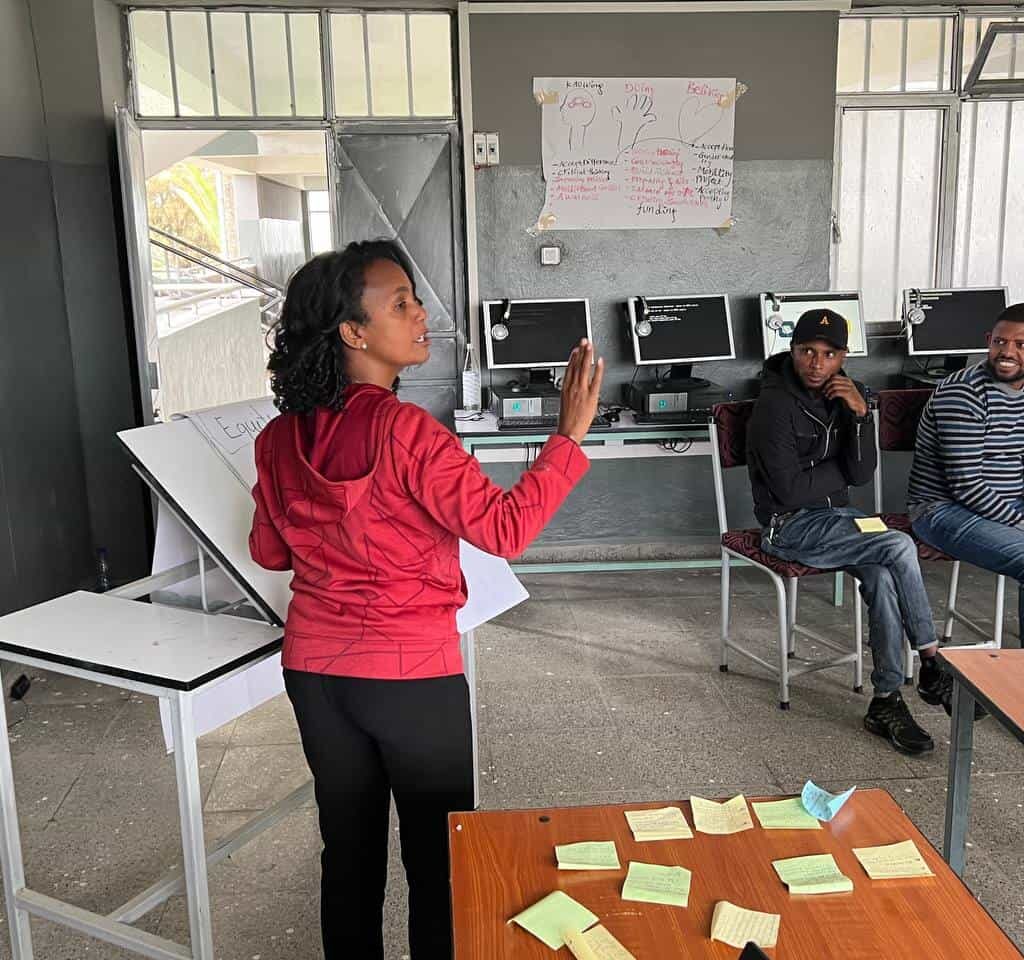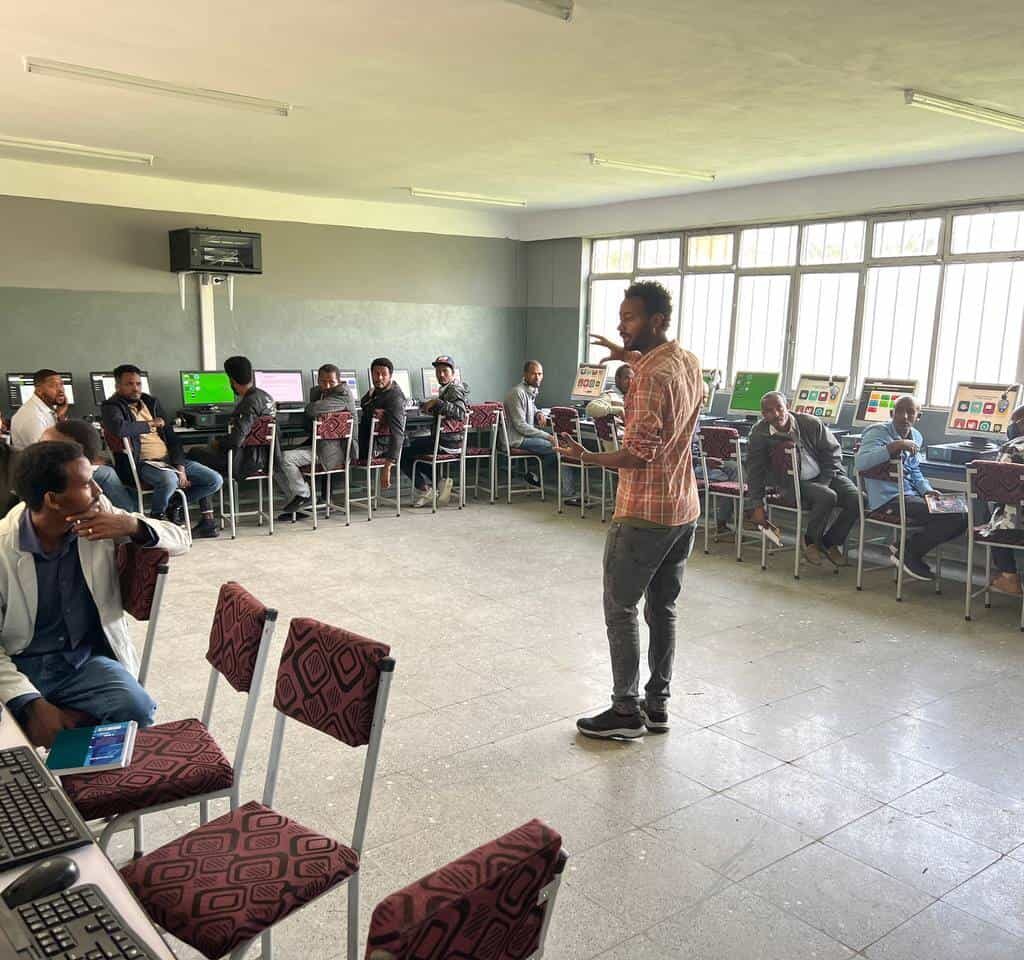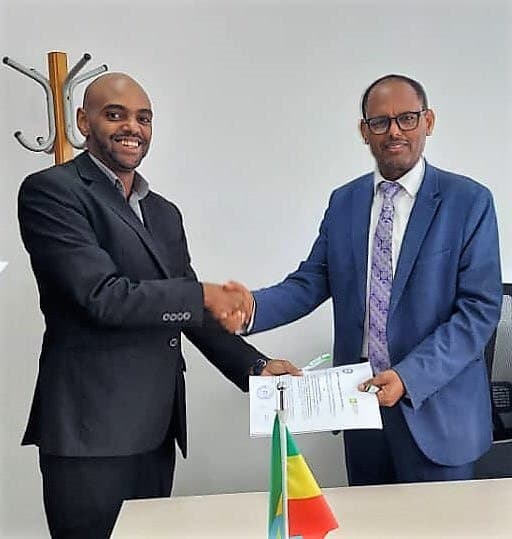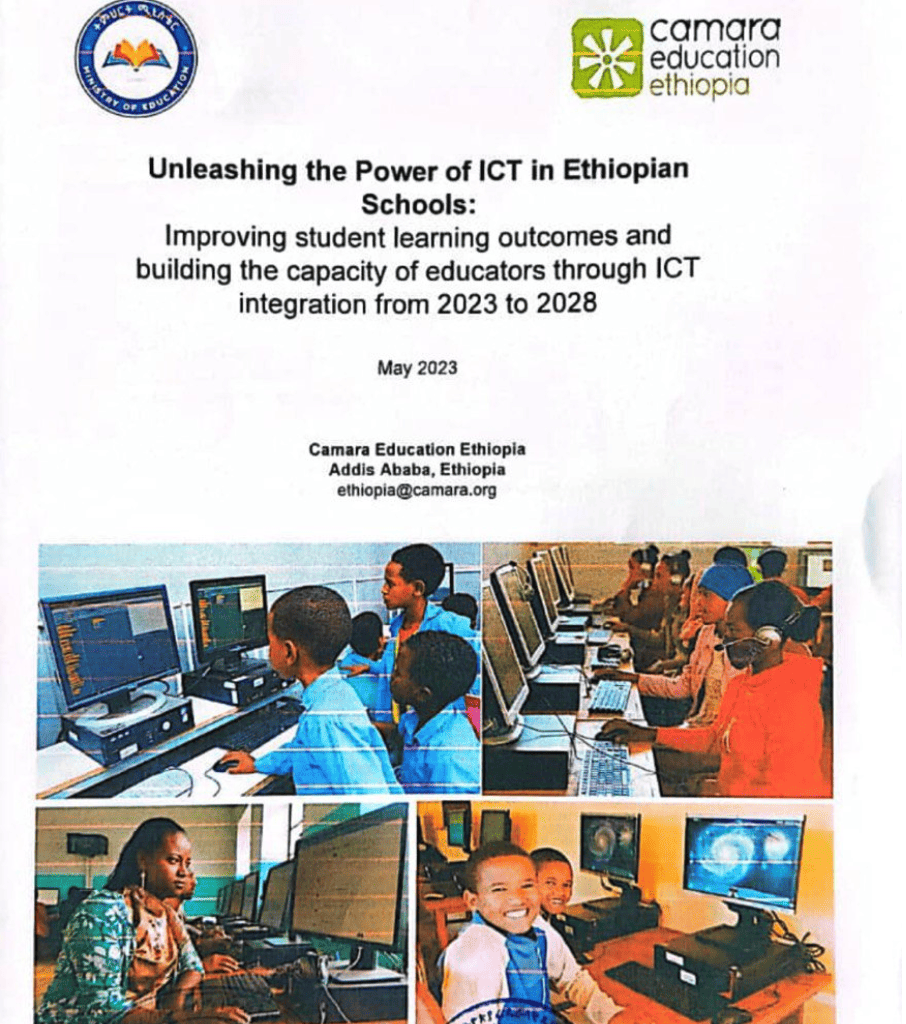At Camara Education Ethiopia, providing internships and volunteer opportunities is one of the key ways we nurture the next generation of digital changemakers. Each year, approximately 40 young people join Camara as interns and volunteers, bringing with them ambition, dedication, and an eagerness to learn. For some, it’s a stepping stone to fulfilling careers in technology, while for others, like Yoas Mulatu, it’s an opportunity to explore, challenge, and realise their dreams.
Yoas Mulatu, a 20-year-old Information Technology (IT) student at Kirokos Manufacturing College, exemplifies the transformative power of our internship program. Growing up with a fascination for computers, Yoas pursued an IT degree to turn her passion into a lifelong skill. This drive to learn and grow brought her to Camara, where her journey began with a school-organised group internship. Having heard positive feedback from former interns, she was excited to see firsthand what Camara’s program could offer.
A Hands-On Experience in IT
Since joining, Yoas has had an immersive experience with Camara, gaining practical skills that extend beyond the classroom. Her internship has been hands-on from the start, including tasks like installing educational operating systems, diagnosing and solving hardware issues, and maintaining school computers. For Yoas, each project is an opportunity to dive deeper into her chosen field, developing her expertise in the Ubuntu operating system and learning how to troubleshoot complex hardware problems. “Each task teaches me something new,” says Yoas, “whether it’s problem-solving or better understanding computer systems. This experience is not just about learning technical skills; it’s about growing into a confident IT professional.”
Beyond the technical aspects, Yoas has benefited from Camara’s collaborative and supportive environment. Our programs encourage interns and volunteers to connect, share ideas, and support one another, fostering an inclusive culture where young women and men feel empowered to lead and innovate. For Yoas, working with a diverse team has expanded her professional network and strengthened her communication skills, providing her with tools that are critical to succeeding in the tech industry.
Breaking Barriers as a Woman in Tech
One of the most rewarding aspects of Yoas’s journey has been the confidence she’s gained working in a male-dominated field. “Initially, I had little knowledge of computer internals or how to solve hardware issues,” Yoas reflects. “But over time, I’ve learned through hands-on experience, and now, I feel empowered to handle challenges I once thought were beyond my reach.” She’s particularly proud to be part of a team that champions diversity and encourages women in tech, which is critical for breaking down stereotypes and inspiring more young women to enter the field.
Yoas believes that the industry needs more women and girls, and her message to other aspiring female IT professionals is to pursue their dreams boldly. “In my classroom, the number of women is quite low, and the same is true in the IT field,” she says. “We need to change that by encouraging more girls to explore technology. We all have the potential to achieve great things if we leverage the tools and knowledge available to us.”
Looking to the Future
As Yoas is near her graduation, she has her sights set on a future that blends her passion for technology with her desire to give back to her community. She hopes to open a computer maintenance store, providing reliable, affordable tech support and creating a welcoming space for community members to learn about technology. Her vision includes building a platform that not only serves her community’s needs but also inspires young people—especially girls—to see tech as a field where they belong and can thrive.
Camara Education Ethiopia is proud to be part of Yoas’s journey, and her story is a testament to the power of hands-on learning, mentorship, and the resilience of young people ready to create positive change.
Are you inspired by Yoas’s journey? Camara Education Ethiopia is always looking for passionate volunteers and interns eager to make a difference. Join us, and be part of a team committed to transforming lives through technology, by sending us an email to ethiopia@camara.org.

